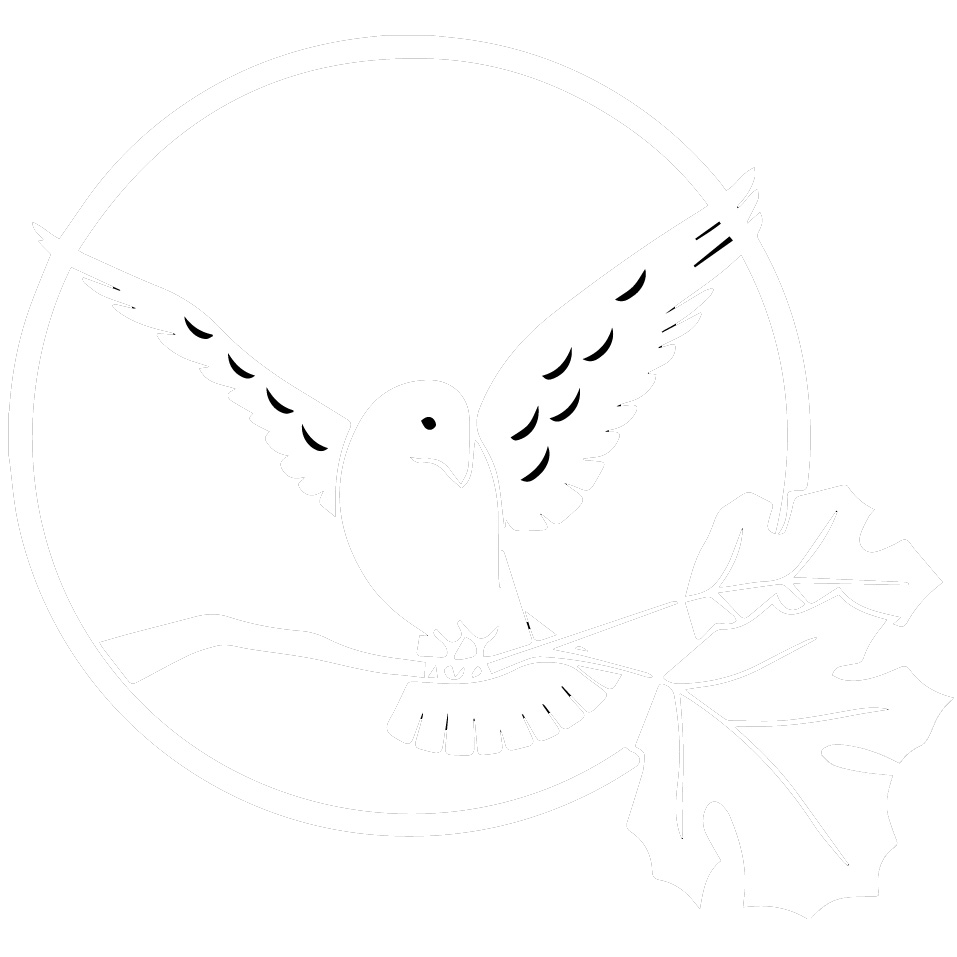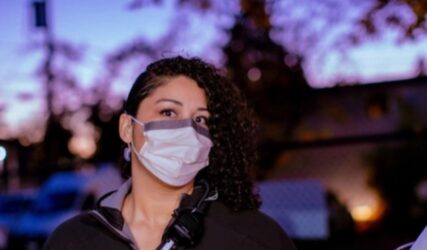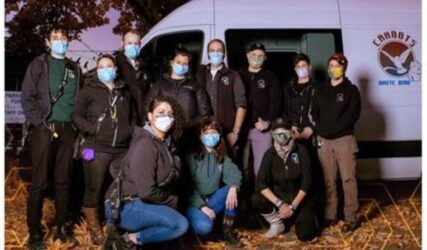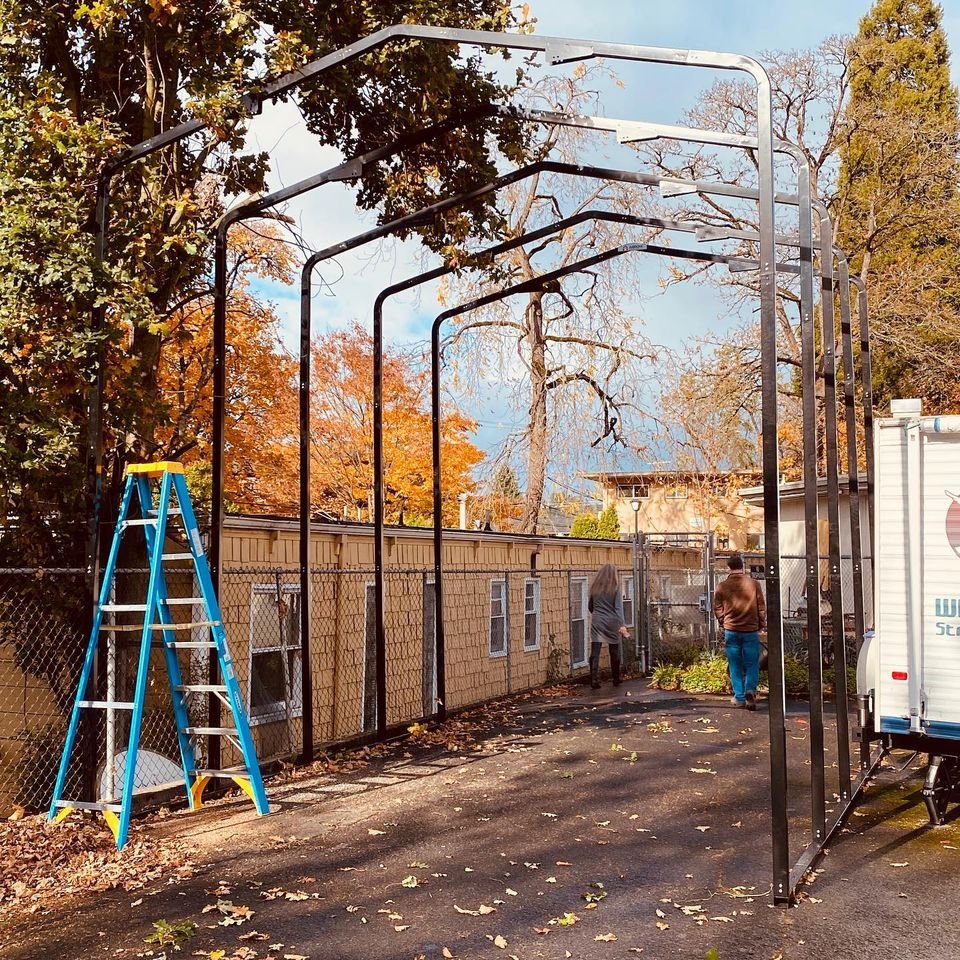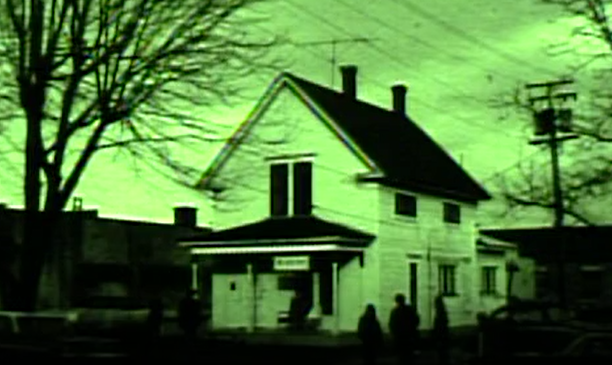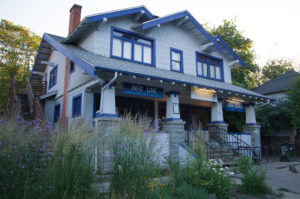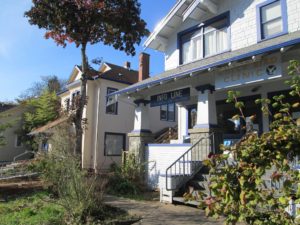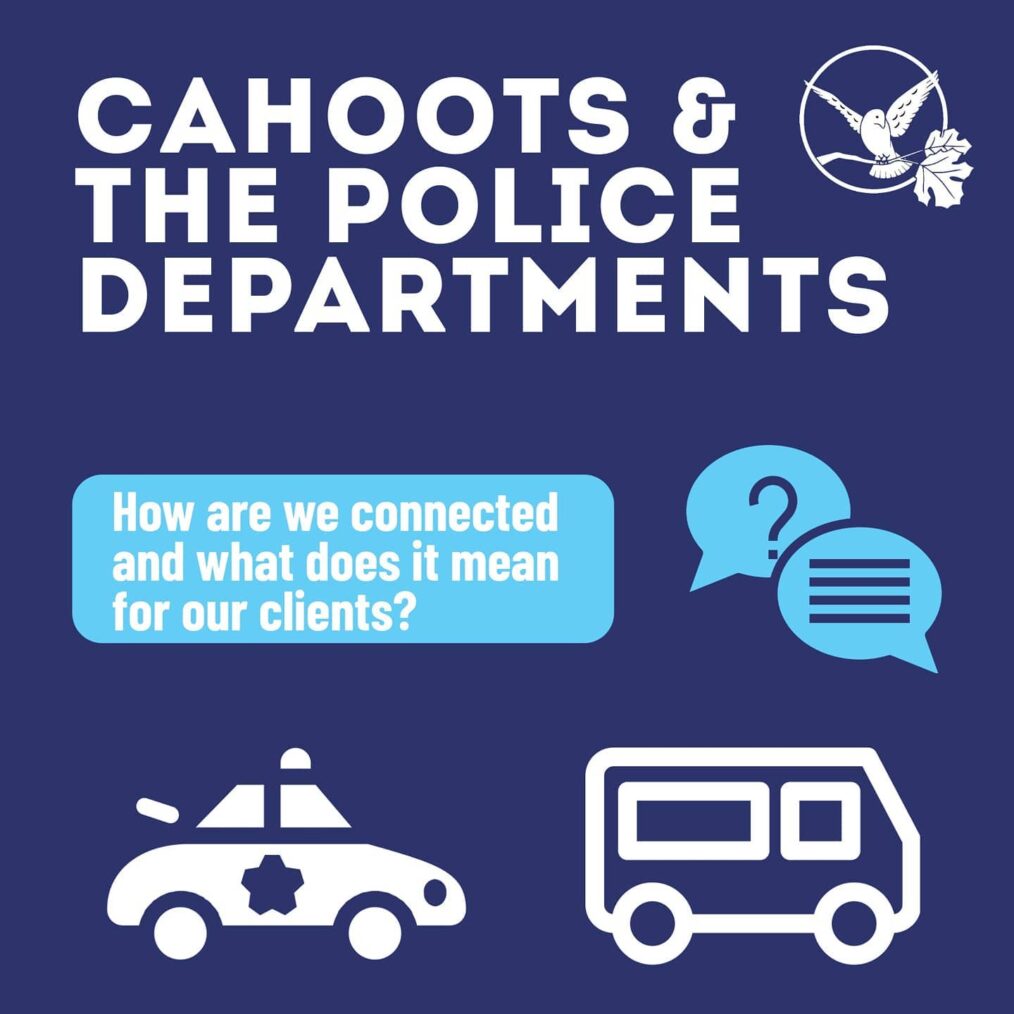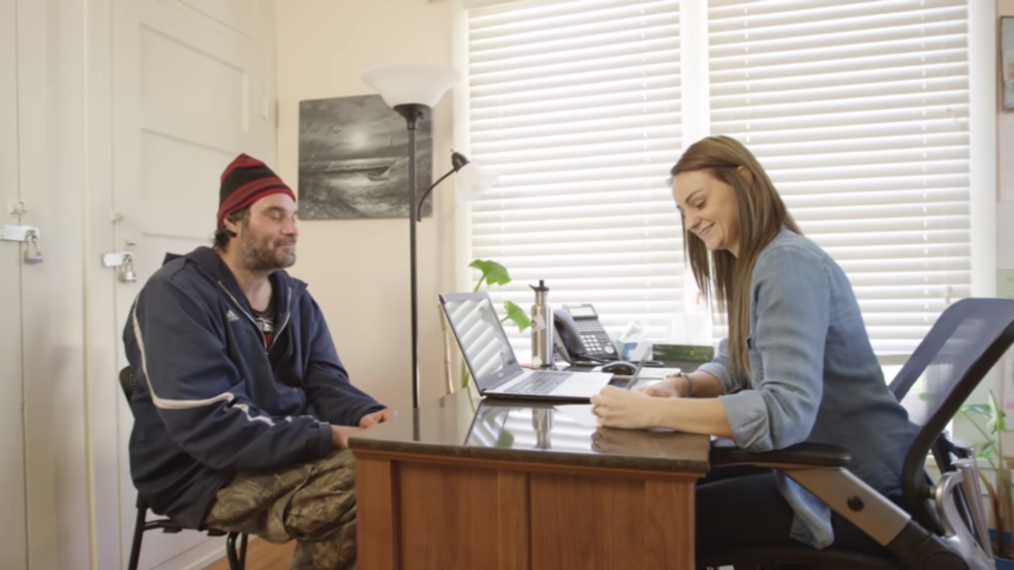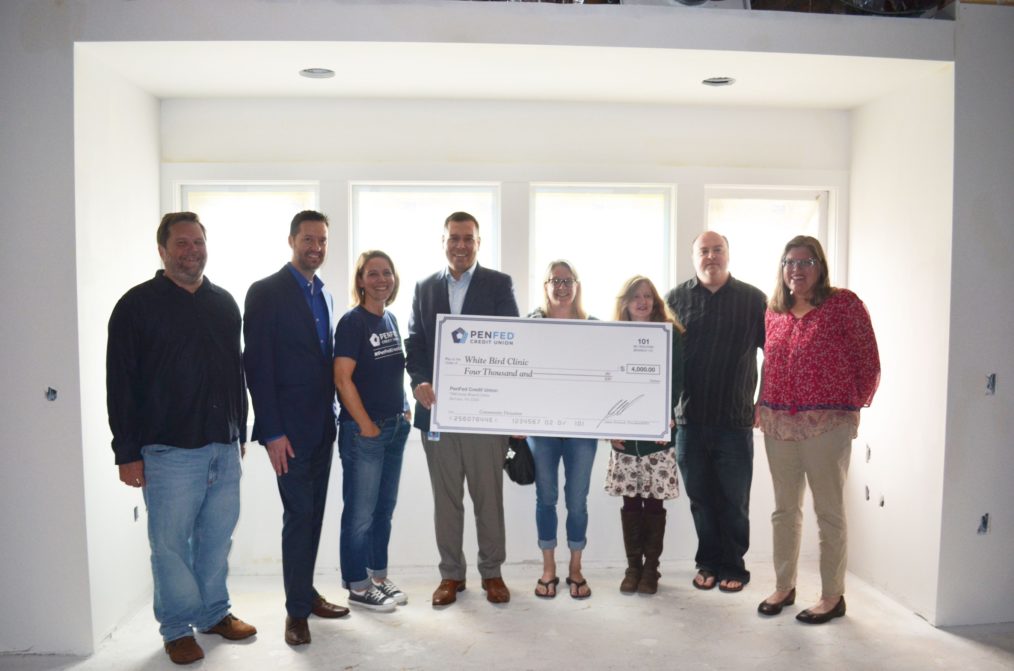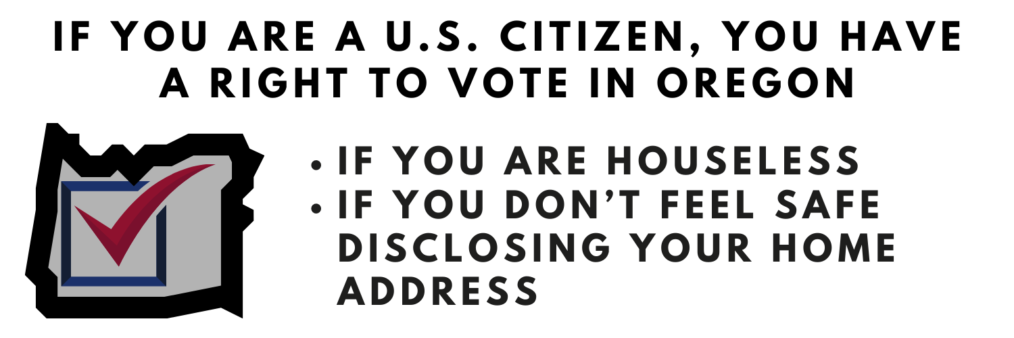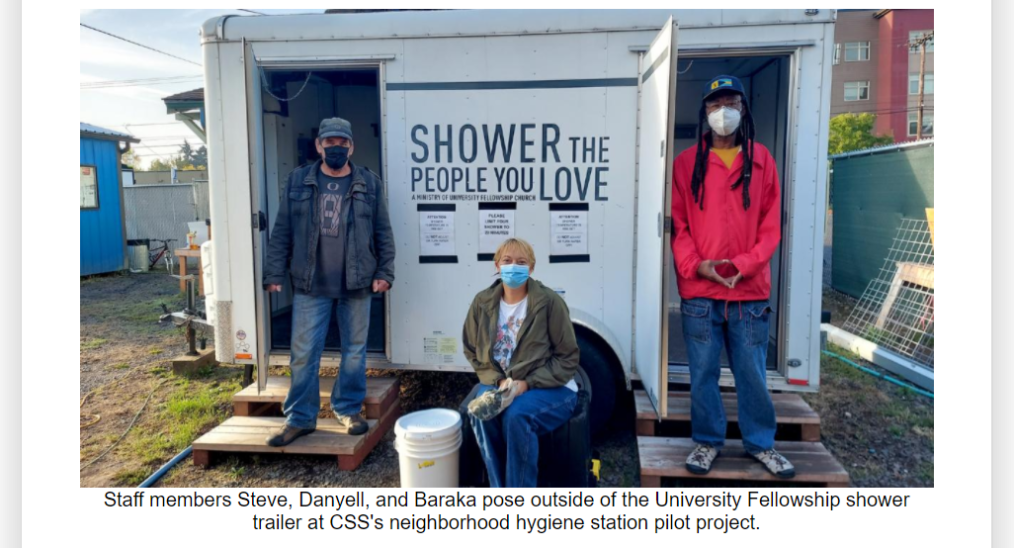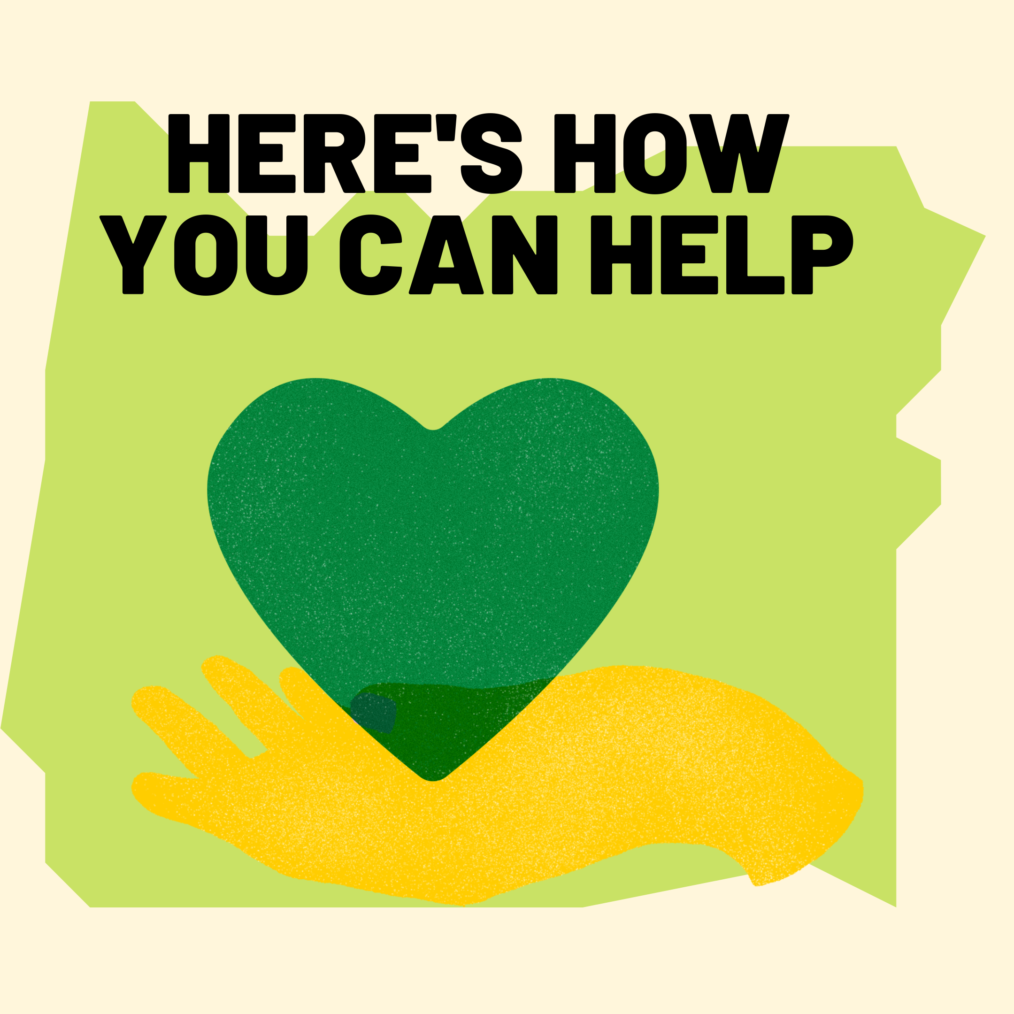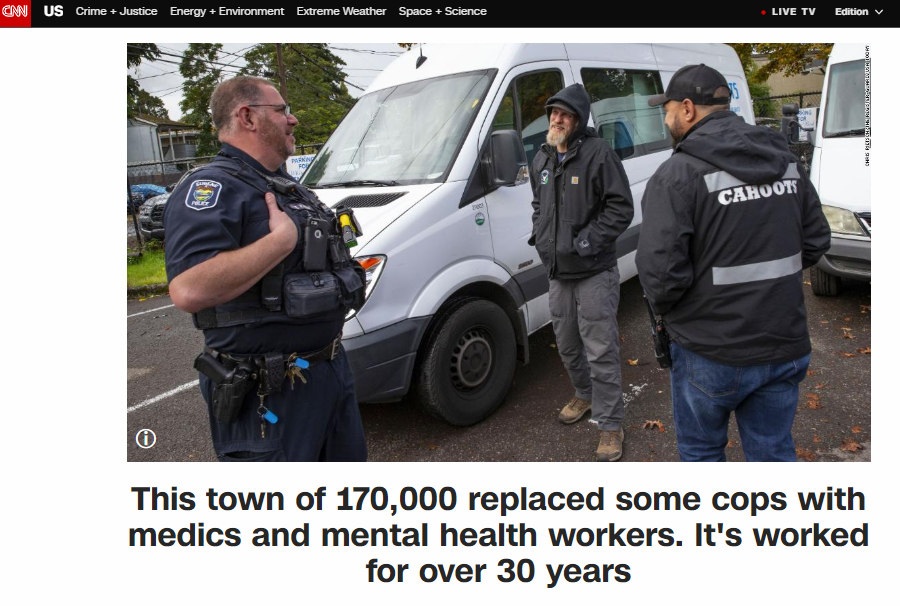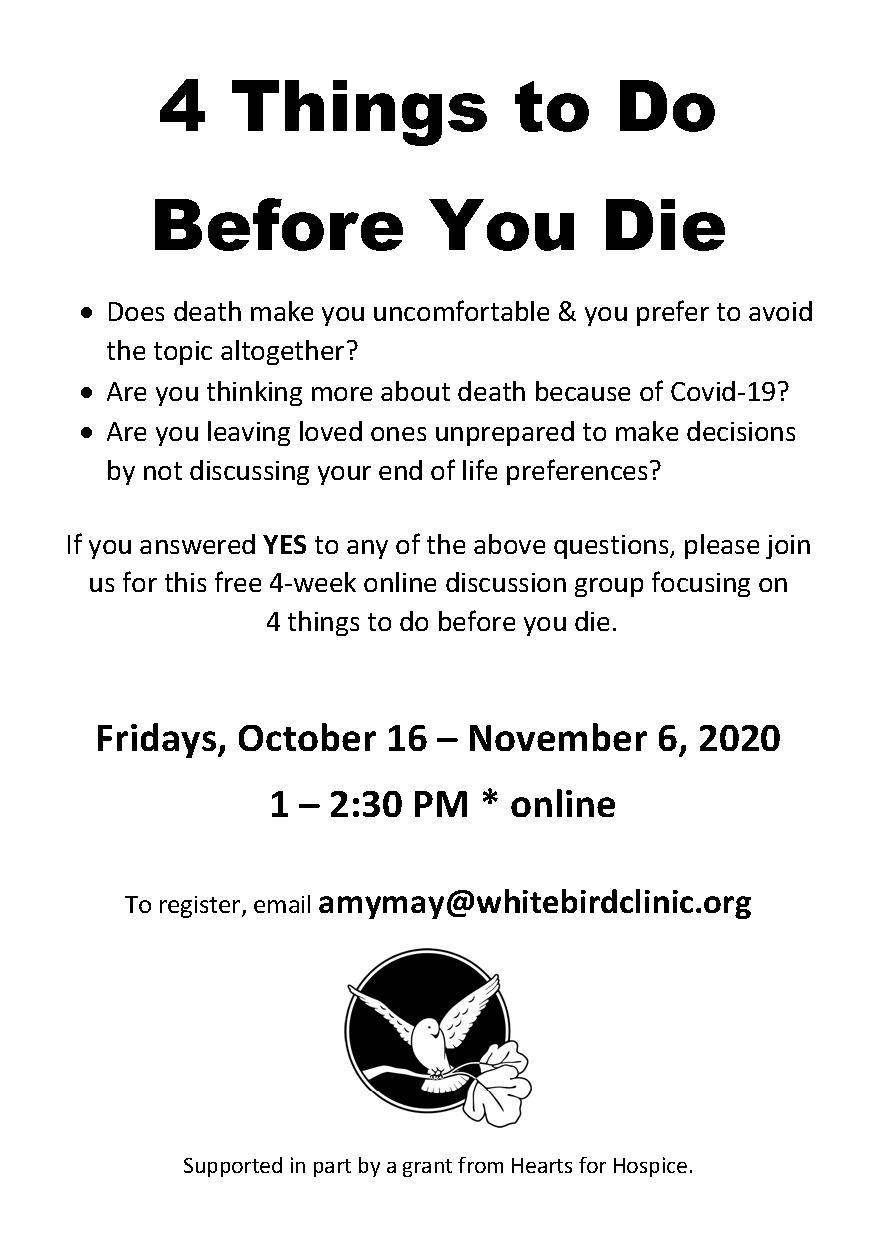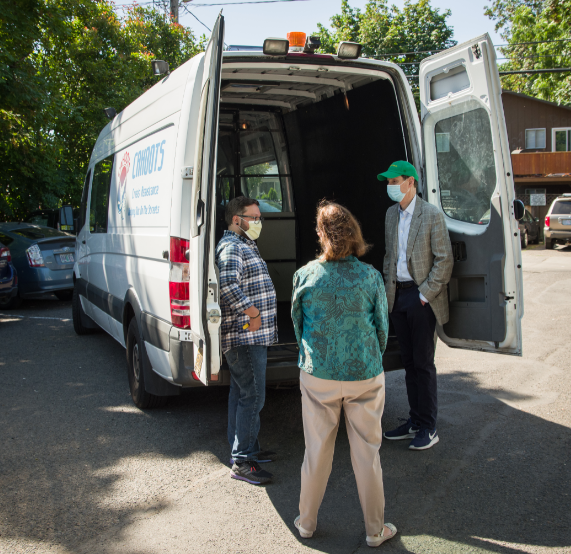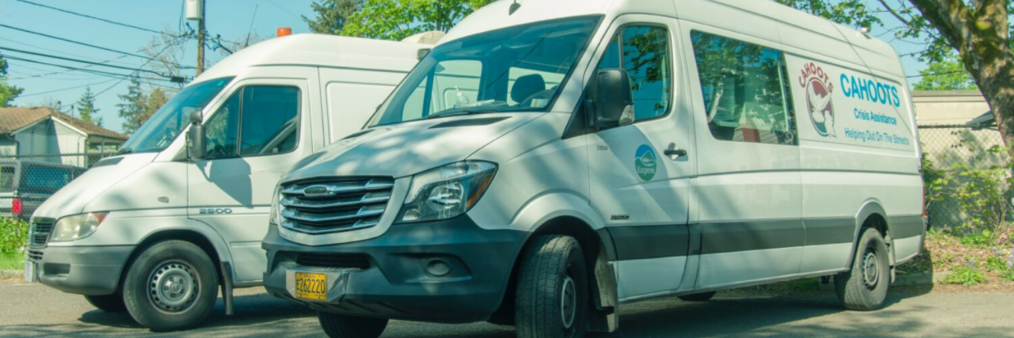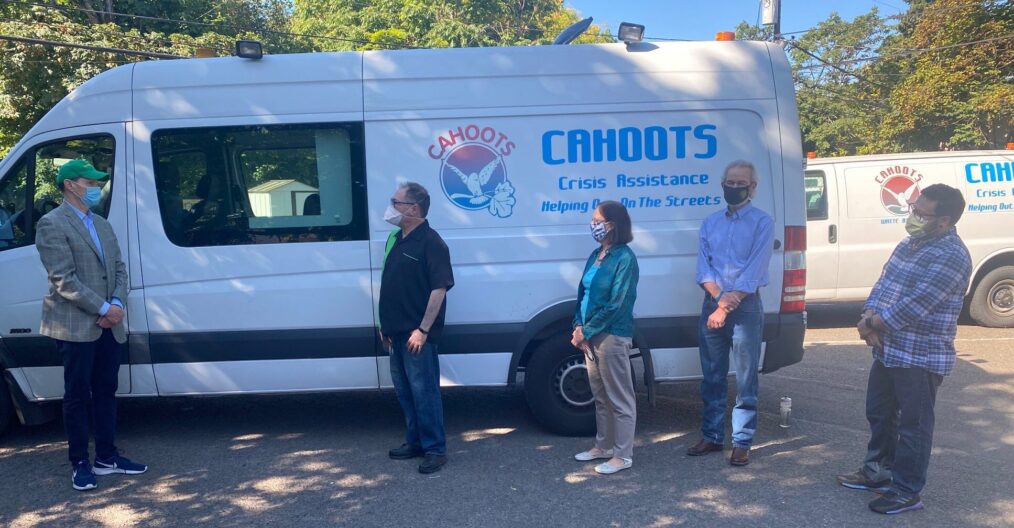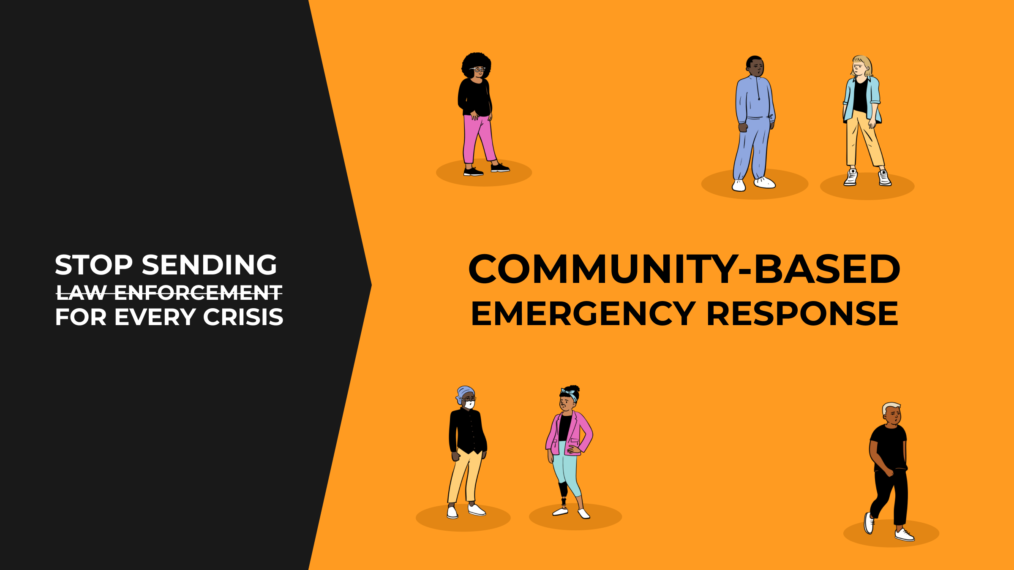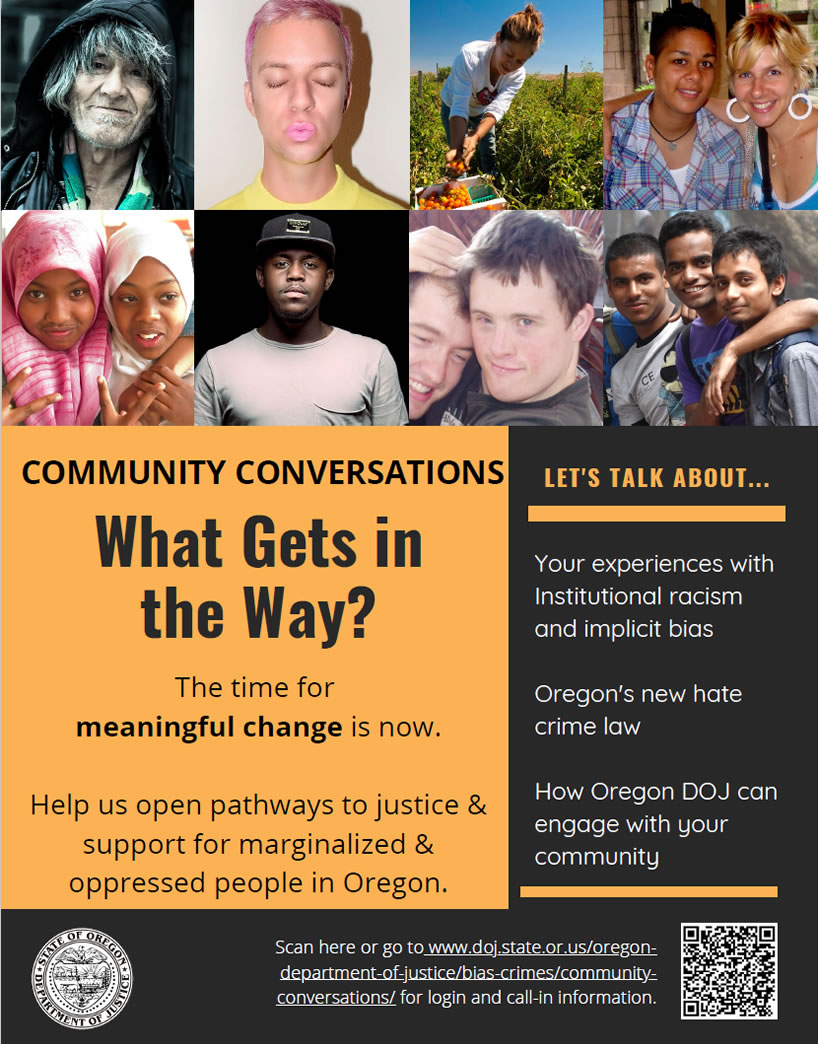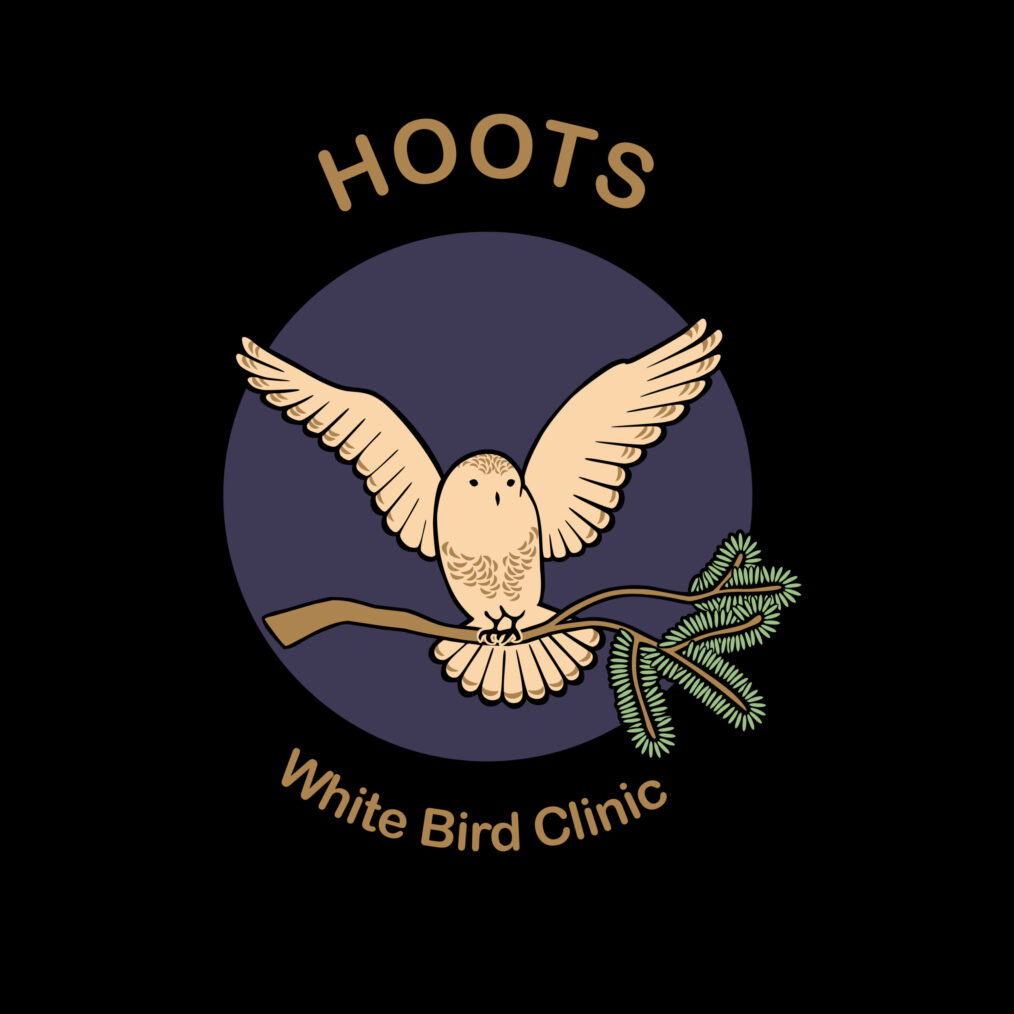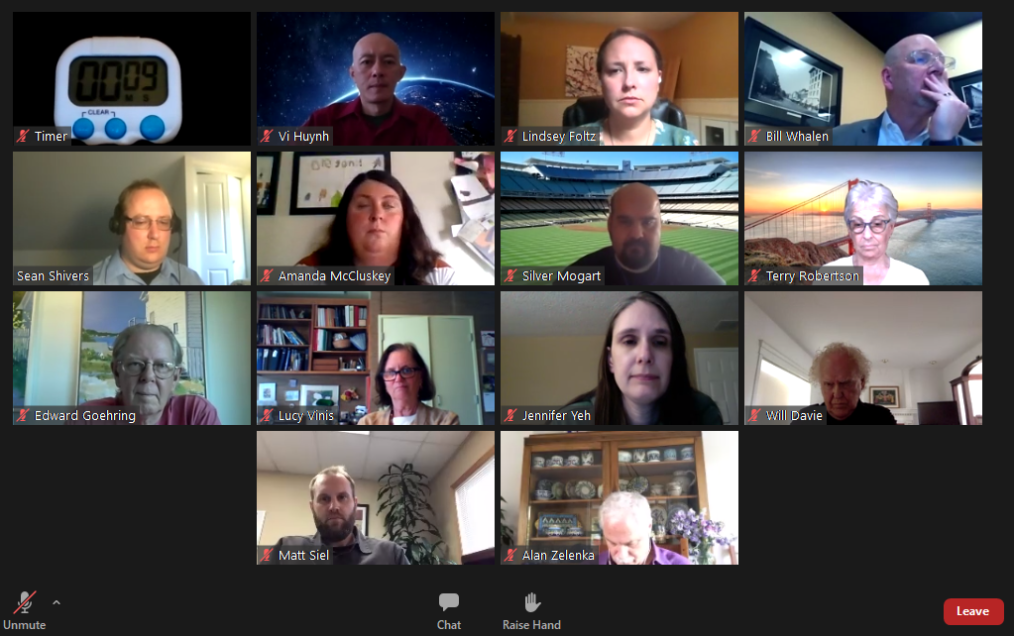In the annual Eugene Weekly Best of 2020, CAHOOTS won best non-profit and best service for the homeless. Ebony Morgan, program coordinator and RN won best healthcare worker. Thank you Eugene, we are humbled as ever. Let’s keep our hearts open and these vans rolling.
In Memory of Anthony Laveroni
A few weeks ago, Jose Soto-Gates, White Bird Clinic’s Fundraiser, was contacted by a group of students involved with Greek life on the UO campus wanted to raise money for White Bird in memory of their dear friend, Anthony Laveroni. Together, they created a fundraising page to support mental health services and invite contributions from the wider community.
Sigma Alpha Epsilon Fraternity will be hosting a Suicide Prevention Week, where they will be distributing the White Bird Help Book to all the fraternity’s and Sorority’s on campus to promote the 24 hour WB Crisis line services as well to highlight the help book as a community resource.
White Bird Medical Clinic has partnered with Kaiser Permanente to develop a safe, COVID-19 screening and testing center for Lane County’s unhoused populations. The screening center will be located in White Bird’s primary care walk-in clinic, with construction planned to start February 2021. The new primary care walk-in clinic will offer on-demand acute care to our community’s most vulnerable residents. Without access to walk-in primary care, patients utilize emergency room treatment for acute but not emergent problems, reducing the availability of treatment for life-threatening emergencies.
In addition, treatment at an emergency room is at least five times more costly than a primary care encounter. With ambulance transport, emergency treatment becomes an order of magnitude more expensive than primary care. These dramatically increased costs, along with reduced availability of treatment for life-threatening emergencies, constitute a crisis for our community and the institutions that provide and fund health care. With your help we will continue preventing unnecessary emergency room treatment and subsequent hospital admissions and preserve healthcare system capacity essential for accommodating an increase in COVID-19 hospitalizations.
As winter approaches, Kaiser Permanente’s $100,000 award will help White Bird construct a separate entrance to their Eugene clinic on Mill Street and add negative-pressure exam rooms for safe COVID-19 symptom monitoring. https://t.co/SLjcTDHR4l
— White Bird Clinic (@WhiteBirdClinic) November 14, 2020
When complete, the new facility will allow White Bird to quickly identify and respond to emerging health care needs, preventing the infection and spread of COVID-19 in people experiencing homelessness through symptom monitoring, screening, and testing. It will also enhance White Bird’s work coordinating care for the local population of unhoused individuals, strengthen partnerships with referring agencies and organizations, and support coordinating community efforts to suppress COVID-19. An additional benefit will be the capacity to conduct point of care testing for dental clinic patients, in order to keep dental staff safe and improve access to oral health care.
Also See:
White Bird Clinic to construct screening and testing center for unhoused – Register-Guard, November 2020
Sign up now to receive emergency notifications via text message, phone call or email.
Lane County is able to send you emergency alerts via text message, email, pager, or voice call (in extreme cases), based on your preferences. It is important that they collect this contact information because many households no longer utilize traditional land-based telephone lines.
This service, powered by AlertSense, allows fire, police and other emergency response agencies to issue emergency alerts to warn citizens of events such as severe weather, fire, flooding, hazardous materials, need for immediate evacuation, civil danger, local area emergencies, and missing persons.
SIGN UP today and share the types of alerts and notifications that you would like to receive, as well as your contact information and preferences.
Enter your PHYSICAL address and zipcode to receive advanced warning of severe weather or emergencies that directly impact the area in which you live or work. In the event of a life-threatening emergency, alerts will be delivered to you through priority channels including phone calls and/or priority text messages. Non-emergency notifications are received through text and email.
Emergency voice alerts sent from the County will come through with the following CallerID displayed: (541) 972-3177. If you would like to hear the last message repeated, simply dial the CallerID number.
These alerts are provided free of charge, however standard text messaging rates and other charges may apply.
‘Healing House” is an excerpt from “FRONTLINE,” a 40,000-word original work of creative nonfiction on White Bird Clinic’s crisis intervention team, published in 1994 by Mark H. Massé, who received his master’s degree with honors from the School of Journalism and Communication (SOJC) at the University of Oregon in 1994. After serving on the SOJC faculty, he spent 22 years in the Department of Journalism at Ball State University, retiring in 2018 as professor emeritus.
Copyright (1994) by Mark H. Massé. All rights reserved.
Twenty-some years ago, White Bird Clinic was known as a glorified crash pad for teenagers who were hallucinating on psychedelic drugs. The clinic, which was founded as a counterculture collective in 1970, was viewed with suspicion and concern by the Eugene establishment. People criticized its perceived. “overly permissive attitude” toward drug use. Some said White Bird was harboring criminals and runaways.
The police were angry about the clinic’s confidentiality agreements with clients whom the cops saw as drug-dealing lowlifes. A typical front-desk encounter at White Bird would go something like this:
“You can’t or won’t tell me if this guy hangs out here?” the police officer asks the long-haired receptionist. “Both,” the White Birder replies, smugly.
Today, White Bird Clinic’s confrontational image has mellowed, but it has retained its collective/communal organizational structure and its identity as a grass-roots human services and community advocacy organization. White Bird’s mission: to serve the people nobody else wants to deal with, the folks who fall between the cracks. Each year, the clinic responds to the medical, mental health, and social service needs of thousands of low-income, alienated, abandoned, and disenfranchised clients in Lane County.
Through the decades, the once-controversial clinic has transformed itself, becoming more establishment oriented than anyone could have imagined back in the 1970s. White Bird Clinic now has a million-dollar annual operating budget and is involved in cooperative programs with Sacred Heart Hospital, Lane, County Mental Health Services, and the Eugene Police Department, plus many other public- and private-sector organizations. The clinic’s comprehensive operations include medical and dental services, 24-hour crisis intervention, mental health screening and evaluation programs, AIDS testing, drug treatment services, and extensive information and referral services.
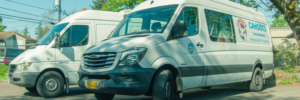 One innovative cooperative venture is C.A.H.O.O.T.S. (Crisis Assistance Helping Out On The Streets), a result of a 1989 partnership between White Bird Clinic and Eugene’s public safety system. Funded by the city of Eugene, the C.A.H.O.O.T.S. program uses a van that is radio-dispatched through the 911 system. A two-person team—a White Bird crisis worker and a trained medic—responds to calls dealing with drug and alcohol abuse, mental illness, emotional crises, and family disputes that pose a small risk of violence.
One innovative cooperative venture is C.A.H.O.O.T.S. (Crisis Assistance Helping Out On The Streets), a result of a 1989 partnership between White Bird Clinic and Eugene’s public safety system. Funded by the city of Eugene, the C.A.H.O.O.T.S. program uses a van that is radio-dispatched through the 911 system. A two-person team—a White Bird crisis worker and a trained medic—responds to calls dealing with drug and alcohol abuse, mental illness, emotional crises, and family disputes that pose a small risk of violence.
Over the years, White Bird Clinic’s clientele has also changed, becoming more representative of the mainstream community. The clinic’s crisis intervention team frequently handles calls from area residents of all ages who have questions about personal or family relationships, as well as more serious concerns such as suicide prevention, domestic abuse, or chemical dependency issues. Case in point: Recently, an 11-year-old girl from a middle-class suburb, called the clinic because her parents were going through a divorce, but they weren’t including their daughter in any discussions. The girl was referred to White Bird by a telephone operator. She later talked with a White Bird counselor about what was happening to her and her family.
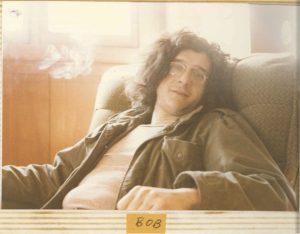 “Maybe we’re more reputable today than we think we are,” says Bob Dritz, White Bird Clinic’s coordinator, as he reflects on the clinic’s rocky-road history over the last 25 years. It is as if White Bird Clinic has a Protean identity—it continues to evolve and reinvent itself in response to changes in the outside world. Dritz relishes his role as resident historian of White Bird Clinic.
“Maybe we’re more reputable today than we think we are,” says Bob Dritz, White Bird Clinic’s coordinator, as he reflects on the clinic’s rocky-road history over the last 25 years. It is as if White Bird Clinic has a Protean identity—it continues to evolve and reinvent itself in response to changes in the outside world. Dritz relishes his role as resident historian of White Bird Clinic.
With his mop of black hair, tinted aviator-style glasses, and wide-brimmed straw hat, his rag-tag wardrobe, and laid-back crash-pad drawl, Dritz looks and sounds more like a zoned-out, middle-aged hipster than a keen-minded financial whiz who helped guide the clinic down the path to respectability. At the start of each season’s new-volunteer orientation session at White Bird, 20 individuals, who have already been screened by a clinic trainer, sit on the floor in the community room and await their introduction to the organization. Clinic coordinator Dritz sits among the newcomers like a wise tribal chief and recites the oft-told tale of White Bird Clinic.
The history of the clinic dates back to the late 1960s when the drug problem officially hit Eugene, Oregon. Disenchanted, angry, and rebellious youths roamed the streets of this bucolic city nestled in the heart of the lush Willamette Valley in western Oregon. These “hippies,” who had rejected authority and conventional lifestyles, were turning on and tuning in to a new consciousness. They were experimenting with hallucinogens, amphetamines, barbiturates, and just about any other drug they could get their hands on. LSD—”acid”—was the drug of choice for this psychedelic generation who were “tripping” to pursue psychic exploration, achieve satori (enlightenment), or get their kicks on mind-bending, reality-twisting roller-coaster rides.
The problem was that the ticket to nirvana often came at a high price. Young drug users were overdosing, taking bad trips (“bummers”) and “freaking out.” Having severed their ties with straight society, many of the drug-taking youth were without food, shelter, or proper medical care.
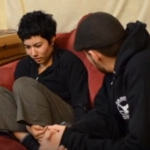 In the late sixties, the medical establishment in Eugene and everywhere else didn’t know how to deal with the drug problem. The emergency room doctors were, in the words of one historical account, “flying by the seat of their pants” when treating patients on bad acid trips, injecting them with high doses of phenothiazine tranquilizers, usually 50 mg of Thorazine. Thorazine was seen as a means of normalizing and sedating patients with psychotic or schizophrenic behavior, which is how the ER doctors viewed drug overdoses. The problem was that phenothiazines packed some pretty heavy side effects. A disoriented teenager on a bad trip who came into an emergency room could very well leave in worse shape than when he or she arrived—shot full of Thorazine and now suffering from dizziness, blurred vision, muscle spasms, or tremors.
In the late sixties, the medical establishment in Eugene and everywhere else didn’t know how to deal with the drug problem. The emergency room doctors were, in the words of one historical account, “flying by the seat of their pants” when treating patients on bad acid trips, injecting them with high doses of phenothiazine tranquilizers, usually 50 mg of Thorazine. Thorazine was seen as a means of normalizing and sedating patients with psychotic or schizophrenic behavior, which is how the ER doctors viewed drug overdoses. The problem was that phenothiazines packed some pretty heavy side effects. A disoriented teenager on a bad trip who came into an emergency room could very well leave in worse shape than when he or she arrived—shot full of Thorazine and now suffering from dizziness, blurred vision, muscle spasms, or tremors.
Out of the purple haze that had descended on Eugene, stepped two 25-year-old doctoral students in psychology from the University of Oregon. Dennis Ekanger and Frank Lemons looked like characters from the movie “M.A.S.H:” Here’s Ekanger—a Radar O’Reilly, with more hair. There’s Lemons, a Hawkeye Pierce/Donald Sutherland stand-in, with more hair and a beard, of course.
Ekanger knew firsthand about the problems of drug abuse from his days as a resident hall counselor at the University of Oregon and in his work as a juvenile counselor for the county. The rap on the street was that the chain-smoking, deep-voiced Ekanger was an empathetic guy who could help you cool down and sort things out. Ekanger was living in an old Victorian-style house on 20th Avenue and Lincoln in Eugene’s “student ghetto.” His reputation grew to the point where students and drifters, Vietnam vets and runaways would be hanging out on his doorstep every day wanting to rap about their mixed-up lives.
Like Dennis Ekanger, Frank Lemon had a following. For months, he had been counseling young people in crisis. Lemons’ reputation was enhanced by his counterculture connections. He had many friends living in a large commune on a 200-plus acre farm outside of town. The members of the commune would later form the core group of White Bird’s supervisors and full-time volunteers in the clinic’s early years.
In 1969, Ekanger and Lemons enlisted the support of Dr. Leonard Jacobson, a successful and respected surgeon and past president of the county’s medical society. Dr. Jacobson had been outspoken about the need for new approaches to the drug crisis. He provided the legitimacy and the established community contacts that Ekanger and Lemons lacked.
The three men conceived of a psycho-social-medical approach (influenced by such operations as the Haight Ashbury Free Clinic in San Francisco) and advanced the idea of a community free clinic and counseling/drug education center, a sanctuary to deal with people’s drug-related problems. More than 100 community leaders were involved in the crafting of the proposal for a clinic to be known officially as White Bird Sociomedical Aid Station, Inc. 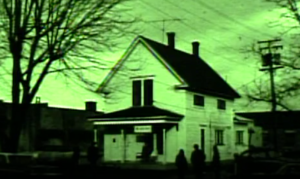
Ekanger and Lemons each put up $250 to incorporate the clinic and organized a board of directors. The two served as the clinic’s co-directors. After securing grants from the city ($4,800) and state ($7,500), plus community donations, White Bird Clinic started operating on February 22, 1970, in a rented house at 837 Lincoln Street. Furniture was donated by local churches. Area hospitals contributed medical equipment and supplies. In the first few weeks, more than 150 doctors and nurses, plus dozens of attorneys, social workers, and educators donated their time and services to get the clinic up and running. After only one month, the clinic was being used as a field site for graduate students in counseling. Soon, more than 100 -university students were clinic volunteers.
In October 1971, the clinic purchased adjacent houses at 323 and 341 E. 12th Avenue for $67,500. The “annex” at 323 E. 12th housed the medical clinic and drug detox and drug education services. The clinic’s main building at 341 E. 12th was headquarters for crisis intervention, counseling, legal services, and an expanding list of client advocacy and referral programs.
The house at 341 E. 12th Avenue had once been the residence of a prominent physician who was one of the founders of the Eugene Clinic. The house was built for $4,000 in 1917 according to the specifications of Dr. Philip Bartle, a specialist in internal medicine who ran his medical practice on the main floor of the 3,500-square-foot, two-story home where he lived with his -wife and two children.
According to The History of the Willamette Valley, Oregon, published in 1927, Philip Bartle was a perfectionist, “a man among men, possessing a strong and forceful personality.” Bartle was committed to working on behalf of the public welfare for the “betterment of the community along all legitimate lines.” In the 1920s, he helped establish the Eugene Hospital and Clinic, at the time one of only two standardized hospitals in Oregon outside of Portland.
Bartle’s home was designed in the popular craftsman style of his day. This elaborate “bungalow-type” of architecture featured large porches with truncated pillars or columns, low-pitched gable-styled roofs with prominent gabled dormers, and multi-paned windows of varying shapes and sizes. The front room had extensive wood detailing—columns, beams, paneling, and window casements. Two maple window seats flanked the first-floor mantel and fireplace.
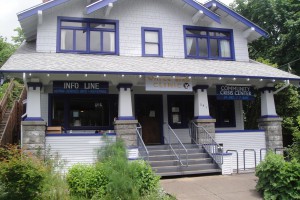 Outside, near the top of the front of the house was a decorative swastika. It was removed during World War II. By then, Dr. Bartle had moved, and the house was sold to his son, William and his wife, Mildred. During the late 1930s, several rooms were rented to University of Oregon students, a practice that continued until 1971 when Mildred Bartle sold the house to White Bird Clinic.
Outside, near the top of the front of the house was a decorative swastika. It was removed during World War II. By then, Dr. Bartle had moved, and the house was sold to his son, William and his wife, Mildred. During the late 1930s, several rooms were rented to University of Oregon students, a practice that continued until 1971 when Mildred Bartle sold the house to White Bird Clinic.
The clinic’s operations in the 1970s were a lot shakier than the sturdy structure in which they were housed. By 1972, both Dennis Ekanger and Frank Lemons had resigned. Several White Birders were arrested that year on drug charges; they were later acquitted. In October 1972, the clinic’s medical area was temporarily closed because of lack of supplies, lack of money, and lack of support from the Eugene medical community. The county’s medical society came forward to assist the clinic but told White Bird that it had to clean up its act, raise its standards, and be willing to accept outside advice on all medical matters.
Through all the clinic’s hassles in-the early years, a core of dedicated White Birders served the cause. They staffed the clinic’s drug detox program, continued round-the-clock crisis intervention services, and ran an ambitious drug education program in the community—giving frank talks to area schools, church groups, and civic organizations. They published a “Drug Education Primer,” which was distributed throughout Eugene, and they staged street “guerrilla” theater productions to raise community awareness and show the establishment where the cracks in the medical and mental health systems were.
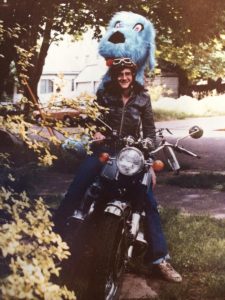 White Bird’s topsy-turvy operations continued until the late 1970s. A soft-spoken transplanted New Yorker named Bob Dritz arrived in 1978. He became the clinic’s fiscal officer and ushered in a period of maturity and relative calm. In another life, Dritz could have been a CEO of a start-up company and made a small fortune.
White Bird’s topsy-turvy operations continued until the late 1970s. A soft-spoken transplanted New Yorker named Bob Dritz arrived in 1978. He became the clinic’s fiscal officer and ushered in a period of maturity and relative calm. In another life, Dritz could have been a CEO of a start-up company and made a small fortune.
But he used his expertise in fiscal planning and budget management to secure the future of White Bird, not make himself rich. like so many others of his generation, Dritz rejected conventional middle-class values and chose a life of community service and social activism. For his work on behalf of the clinic, Dritz gained near-legendary status. He was proclaimed the “financial savior” of the White Bird Clinic.
In July 1982, Bob Dritz assumed the role of clinic coordinator. At this point, the clinic was being recognized as a legitimate and vital link in the county’s health care system. It had an established crisis counselor training program (the Willamette School of Human Services) licensed by the state of Oregon. The clinic also had a diversified base of funding from local, county, state, and federal grants. By the end of the decade, Dritz would oversee a major expansion and diversification of clinic services.
Today, Bob Dritz talks about how the clinic continues to surprise its critics and leverage its clout as an alternative human service agency.
“We’re willing to take on assignments that no other organization wants or has the ability to perform,” Dritz says, sitting in his office on the second floor of the house with the prominent blue, white and gold bird-in-flight sign hanging above its wide front porch. Throughout its colorful history, the distinctive residence at 341 E. 12th Avenue has undergone many changes and transformations. But after 77 years, it remains a healing house for people in need in Lane County.
Massé has authored three books of literary journalism (“Vietnam Warrior Voices,” “Trauma Journalism” and “Inspired to Serve.”) He is also a novelist, whose latest work, “Honor House,” will be published on Amazon.com in summer 2020. For more information, visit: http://www.markmasse.com
31 years ago the City of Eugene, Oregon developed an innovative community-based public safety system to provide mental health first response for crises involving mental illness, homelessness, and addiction. White Bird Clinic launched CAHOOTS (Crisis Assistance Helping Out On The Streets) as a community policing initiative in 1989.
The CAHOOTS model has been in the spotlight recently as our nation struggles to reimagine public safety. The program mobilizes two-person teams consisting of a medic (a nurse, paramedic, or EMT) and a crisis worker who has substantial training and experience in the mental health field. The CAHOOTS teams deal with a wide range of mental health-related crises, including conflict resolution, welfare checks, substance abuse, suicide threats, and more, relying on trauma-informed de-escalation and harm reduction techniques. CAHOOTS staff are not law enforcement officers and do not carry weapons; their training and experience are the tools they use to ensure a non-violent resolution of crisis situations. They also handle non-emergent medical issues, avoiding costly ambulance transport and emergency room treatment.
A November 2016 study published in the American Journal of Preventative Medicine estimated that 20% to 50% of fatal encounters with law enforcement involved an individual with a mental illness. The CAHOOTS model demonstrates that these fatal encounters are not inevitable. Last year, out of a total of roughly 24,000 CAHOOTS calls, police backup was requested only 150 times.
The cost savings are considerable. The CAHOOTS program budget is about $2.1 million annually, while the combined annual budgets for the Eugene and Springfield police departments are $90 million. In 2017, the CAHOOTS teams answered 17% of the Eugene Police Department’s overall call volume. The program saves the city of Eugene an estimated $8.5 million in public safety spending annually.

CAHOOTS calls come to Eugene’s 911 system or the police non-emergency number. Dispatchers are trained to recognize non-violent situations with a behavioral health component and route those calls to CAHOOTS. A team will respond, assess the situation and provide immediate stabilization in case of urgent medical need or psychological crisis, assessment, information, referral, advocacy, and, when warranted, transportation to the next step in treatment.
White Bird’s CAHOOTS provides consulting and strategic guidance to communities across the nation that are seeking to replicate CAHOOTS’ model. Contact us if you are interested in our consultation services program.
Also See:
White Bird will be participating in the “Only Way Forward” webinar series examining the impacts of Canada’s existing criminal justice system, possible alternatives, and next steps on November 12, 4-6 pm PST. Tim Black joins a panel discussion on alternative forms of policing and prisons that have been successful.
What are they and why do they work?
Panelists
Tim Black, White Bird Clinic
Tim Black is the Director of Consulting at White Bird Clinic. With a background in runaway and homeless youth, harm reduction, and street outreach, he began working for CAHOOTS as a Crisis Intervention Worker in 2010, before moving into an administrative role as the CAHOOTS Operations Coordinator.
His work with White Bird and CAHOOTS has put him in touch with cities across North America looking to implement services based on the CAHOOTS model of behavioral health first response. Programs based on the CAHOOTS model have been implemented in Olympia, Washington, and Denver, Colorado. In addition to his work with White Bird Clinic, Tim also serves as the Vice President of the Board of Directors for Eugene’s Community Supported Shelters.
Judy Cameron, Mental Health Counsellor
Judy Cameron is a member of Fort Albany First Nation and is currently living in Thunder Bay, ON. She is a mother of two and grandmother of 4 with 35 years of experience working with individuals and families in Addictions, Advocacy and Child Protection Services in a variety of settings throughout Northern Ontario. She was also a part time instructor at Confederation College in Thunder Bay, teaching classes in the Native Child and Family Worker and the Community Aboriginal Advocacy programs – the vast majority of my work has been with Indigenous children, families and communities.
Despite retiring in 2011, Judy is currently working as a mental health counsellor in Wapekeka First Nation.
“I am honoured to be a part of the Only Way Forward initiative and hope that our dialogue will bring about some meaningful change in Canadian society for the betterment of all peoples.”
Rick Kelly, Just Us : A Centre for Restorative Practices
Rick Kelly lives, as a visitor, on the traditional lands of the Anishnaabeg people. He was first introduced to the restorative model thru an indigenous lens. He has been trained by a Buddhist, rogue teacher, police officer, pastor from youth detention and Kay Pranis at the Canadian School of Peacebuilding (CMU).

He has an MA in Restorative Practices, a BA in philosophy which he was told would doom him to a short and dead-end career, and an advanced diploma in youth work. Rick works to demonstrably unhook form the legacy of the predominant justice system in order to build ecosystems that are just and equitable. This is a continuous and evolving process of understanding and development.
A birth certificate is an important legal document. It is needed to apply for other forms of identification (such as a driver’s license, Social Security card, or state ID card) that you need in order to:
- Work
- Get a place to live
- Apply for and receive public assistance, and
- Remove other barriers.
Starting July 1, 2018, individuals who are homeless can come to White Bird to get help ordering their Oregon birth certificate free of charge. We will
-
-
- Help you complete the birth record order form
- Give you information on what documents are needed
- Provide you a check for payment
-
You will need to mail your order form, check, documentation, and completed application to Oregon Vital Records. Vital Records will mail your birth certificate to you in care of the address on the order form.
For more information, please contact NEST at 541-342-1295 or drop in Tuesday through Thursday 9:30am to 12:30pm. Please check in first at 341 E 12th Ave.
Frequently asked questions:
Can I get my birth certificate for free if I was born in another state?
This program is for persons born in Oregon. Check with the state where you were born to see if they offer free birth certificates to persons who are homeless.
Do I have to provide proof of identity?
Yes. A list of acceptable proofs of identity is on the Oregon Vital Records website. If you don’t have acceptable proofs of identity, we will help you work with Oregon Vital Records to determine what information is needed to release your birth certificate.
Can I get free birth certificates for my family?
No. The grant program was established for individuals who are homeless to get their own birth certificate free of charge. This grant program does not provide funds to get family members’ birth certificates.
Where will my birth certificate be mailed?
Your birth certificate will be mailed to the address on your order form. The envelope will be addressed to you since it is your birth certificate.
Will I be able to use the birth certificate to get other documents such as an Oregon identification card or driver’s license?
Yes. A birth certificate is a legal document used to establish identity. It shows who you are, and when and where you were born. Your birth certificate is a legal document and is confidential. Be sure to keep it in a safe place.
For more information, please contact NEST at 541-342-1295 or drop in Tuesday through Thursday 9:30am to 12:30pm. Please check in first at 341 E 12th Ave.
Community support has allowed White Bird to care for the most vulnerable among us for decades. We’re grateful for all we’ve accomplished together. In order to ensure that we’re working in alignment, we request that folks get in touch with us when planning anything to support White Bird, such as events or fundraisers. We’ll be happy to share ideas or lend a hand.
Please contact us at fundraising@whitebirdclinic.org or call (541) 345-7641. Thanks again, we couldn’t have done this without your help!
Voting When Houseless
Houseless U.S. Citizens Have a Right to Vote
Voters must provide a residence address on the voter registration form, but this address may be any definable location in the county that describes their physical location. This could be the White Bird’s Front Rooms program (must be a registered client), a shelter, park, motor home, or other identifiable location. The mailing address of a person who is homeless or who resides where mail service is unavailable can also be the office of the county clerk:
c/o Lane County Clerk
275 W. 10th Ave.
Eugene, OR 97401
How to Register
To register to vote in Oregon, you must be:
- A U.S. citizen
- A resident of Oregon
- At least 16 years old
If you are not yet 18 years of age, you will not receive a ballot until an election occurs on or after your 18th birthday.
Voter registration in Oregon is available online and at the county elections office. To register to vote online you will need an Oregon driver’s license, permit or ID card number issued by the Oregon Driver and Motor Vehicle Services Division (DMV). If you do not have an Oregon driver’s license, permit or ID card, you can still use the online voter registration application. The information you enter will display on a voter registration card (PDF document) that you will need to print, sign and deliver to the county elections office to complete your registration.
Voting If Concerned for Personal Safety
Some may not want to register to vote because they don’t feel safe disclosing their home address.
Under certain circumstances, a voter can register and vote while maintaining their privacy. To maintain privacy, complete the exemption form:  Application to Exempt Residence Address from Disclosure. Return it to Lane County Clerk at 275 W. 10th Ave., Eugene or contact elections@co.lane.or.us for more information.
Application to Exempt Residence Address from Disclosure. Return it to Lane County Clerk at 275 W. 10th Ave., Eugene or contact elections@co.lane.or.us for more information.
If you wish to register in a language other than English, please select your language below.
Registration Deadline
Remember to register to vote! The registration deadline for Oregonians is Tuesday, Oct. 13th. https://t.co/QxhqipJyAN pic.twitter.com/nlffp0lCmF
— KLCC (@KLCCEugeneOR) October 12, 2020
Already Registered to Vote?
If you are already registered or think you might be registered to vote, use My Vote to:
- check if you are registered to vote
- view your voter registration information
- update your voter registration
- check the status of your ballot
- find contact information for your county elections office
- find contact information for your elected officials
- find a ballot drop site
A federal emergency declaration on Sept. 15 gives all Oregon residents the right to sign up for coverage on the insurance marketplace through a special enrollment period. Read more…
Oregon is currently facing far more evacuations and displacements than recorded history has shown. As such, many Oregonians applying for coverage through the Oregon Health Insurance Marketplace and Medicare plans must take note of how to accurately report their address on the application.
It is important for those displaced by wildfires to be aware of how and where they may retrieve their mail. The United States Postal Service (USPS) has issued information about relocated operations due to wildfires.
The Reboot Station has closed for the winter and will reopen in early spring.
Community Supported Shelter’s hygiene station is grouped with a Microsite of six Conestoga Huts occupied by people all working toward a higher quality of life for themselves. Three of the seven residents are paid, part-time employees helping with showers and meals.
At this point, the ReBoot Station is open for three hours per day, three days a week and provides an average of 50 to 70 showers per week
- Where: 1845 West 11th, Eugene
- When: Wed, Th, Fri from 1pm to 4pm
Here’s how it all works in a nutshell:
Up to eight people wishing to use the shower wait under a 200-square foot canopy tent outside the hygiene station. There are eight chairs spaced roughly six feet apart. Four people are admitted into the station at a time.
After being admitted, a guest washes their hands and checks in. They can get hygiene supplies (razors, feminine hygiene products, toothpaste & brushes, etc.) or new underwear or socks to go along with getting clean.
While people wait at a tent inside the station for a shower (with four socially distanced chairs), they receive a warm nutritious meal and can go through the donated clothes.
White Bird Clinic’s 24/7 Crisis Services program is available 24/7 for Lane County residents. Trained counselors have a deep ability to empathize with clients, as well as extensive knowledge of local resources that are appropriate to provide ongoing care. https://whitebirdclinic.org/crisis
The Oregon Behavioral Health Support Line is a free and confidential resource for all Oregonians who are looking for emotional support. Call 1-800-923-HELP (4357). You do not need to be in mental health crisis to call this line. If you need or want help beyond what the line can provide, you will be connected to those services. This can include community-based services such as housing, food assistance or clinical services. Certified interpreters are also available for those who speak a language other than English. Through this number, you can also connect with Lines for Life (linesforlife.org), a suicide prevention organization with specific resources for youth, military personnel and their families, and those affected by substance abuse problems.
SAMHSA’s Disaster Distress Helpline provides 24/7, 365-day-a-year crisis counseling and support to people experiencing emotional distress related to natural or human-caused disasters. Call SAMHSA’s Disaster Distress Helpline at 1-800-985-5990 or text TalkWithUs to 66746 to speak to a trained crisis counselor.
15th Night’s Crisis Line at 541-246-4046 assists in locating and leveraging existing community resources in order to help a youth who has run away or is currently experiencing homelessness to meet their needs. https://www.15thnight.org/get-help-now
The Child Center’s Crisis Response Program is available 24/7 at 1-888-989-9990 for families with children & youth experiencing mental or behavioral health crises in Lane Cty. https://www.thechildcenter.org/press-releases/
Alternatives To Calling 911 https://whitebirdclinic.org/resources/emergency-crisis-lines/
Lane County Holiday Farm Fire Page
Are you looking for CAHOOTS? To access CAHOOTS services, call police non-emergency numbers:
- 541-682-5111 (Eugene)
- 541-726-3714 (Springfield)
Are you looking for our Crisis line? Contact us at 541-687-4000 or 1-800-422-7558.
Table of Contents
- Basic Needs
- Counseling
- Evacuee Support
- Food
- Health
- Resource Sharing
- Shelter
- Transportation
- Volunteer
- Youth
Basic Needs
- Financial Aid: Catholic Community Services offices are open 8am to 3pm at both Springfield and Eugene locations. Visit https://www.ccslc.org/ for information.
- Government Benefits: The Benefit Finder is a questionnaire to find information on benefits you may be eligible to receive.
- Handwashing Stations and Bathrooms: The City of Eugene has created a map of available public handwashing stations. They have installed handwashing stations around the city near bus stops, the downtown public library and parks and near homeless service sites such as the Eugene Mission. Willamalane has installed handwashing stations in Springfield. A map of the parks and more information can be found at Willamalane.org/Parks. See also Basic Sanitation and Hygiene, Outreach and Services Access
- Housing: See affordable housing opportunities available at SVDP and Homes for Good
- Laundry: Carry it Forward Lane County helps those experiencing homelessness with basic needs and laundry. Those in need or those working with a specific person in need can request help on their website at https://www.carryitforward.net/contact-cif
- Phone and Online Services
- Assurance Wireless: Free phone and data to qualifying low income families
- AT&T hotspots are open to the public. To learn more about AT&T hotspots, visit the AT&T hotspot website.
- City of Eugene provides free public wireless Internet access at city facilities, community centers, and branch libraries that can be accessed outside of the buildings too.
- DHS (Chad Drive) has one open computer for clients to use; wait times are often very long.
- HIV Alliance has placed a phone outside their building for clients to use during office hours.
- Siuslaw Public Library parking lots in Florence and Mapleton. In Florence, look for wifi networks Library 1A, 2, or 3A; in Mapleton: mapletonlibrary
- Xfinity WiFi hotspots across the country will be available to anyone who needs them for free – including non-Xfinity internet subscribers. To find an Xfinity WiFi hotspot, check the hotspot location map at wifi.xfinity.com or download the Xfinity WiFi hotspots app from the App Store or Google Play.
- Showers: Community Supported Shelters new site on West 11th is known as “Reboot Camp”, a place for those in need to take a shower, grab some fresh clothes, eat a warm meal, and even check in with a retired RN about any health concerns. Info at communitysupportedshelters.org
- Work/Employment:
- Download PDF for Oregon Employment Department of COVID-19 Resources and Links
- Lane Workforce Partnership: Go to http://www.laneworkforce.org/ for workforce resource
Evacuee Support
- Colleges: Students and staff displaced by fire with a vehicle can call Public Safety at 541-463-5558 to be provided with a safe place to park and stay in their vehicle, with access to water, wifi, and restrooms. The University of Oregon will provide showers and temporary housing for UO employees and students. If you are a university employee or student in need of such assistance, go to https://around.uoregon.edu/content/president-calls-resilience-face-fires-pandemic to complete a web form.
- Counseling
- Center for Community Counseling has geared up to provide short term counseling for those impacted by the wildfires. They will waive the fees for these sessions. People needing support can call them at 541-344-0620 or visit www.ccc.eugene.org
- Emotional Support: 1(800) 923-HELP (4357)
- Disaster Stress: 1(800) 985-5990 or text TalkWithUs to 66746
- Holiday Farm Fire stress-support resourcesIn-Person Crisis Support: The Graduate Hotel, 66 E. 6th Ave., Eugene, M-F, 10a-1p & 2p-5p
- Housing Resources:
- Information for renters affected by wildfires
- Disaster Assistance: Spanish FAQs
- Advice for Returning to a Home that Survived a Wildfire
- How to Safely Manage Ash and Debris from Burned Buildings
- Oregon Housing and Community Services Wildfire Housing Damage Relief Program
- Center for Community Counseling has geared up to provide short term counseling for those impacted by the wildfires. They will waive the fees for these sessions. People needing support can call them at 541-344-0620 or visit www.ccc.eugene.org
- Financial Assistance
- Individuals
-
-
- All people whose homes were impacted by the 2020 Oregon wildfires should apply for Individual Assistance. FEMA assistance is available to families and business owners in Clackamas, Douglas, Jackson, Klamath, Lane, Lincoln, Linn, and Marion counties. People can apply for assistance by going to http://www.DisasterAssistance.gov or calling 1-800-621-3362 or 1-800-462-7585 TTY.
- Catholic Community Services of Lane County has received a limited amount of additional funds to distribute to individuals or families who have not already received this assistance and have been evacuated due to the Holiday Farm Fire in Lane County. One adult per address is eligible to receive a $250 VISA Cash Gift Card upon showing ID or proof of residence in an evacuated zone (level 3 and level 2). CCS Springfield Community Service Center location only, located at 1025 G Street in Springfield. (Bus stop right outside the front entrance) Monday, September 28th from 8:00 am – 2:00 pm AND Wednesday, September 30th from 8:00 am – 2:00 pm
- Eugene YMCA Offering Free Child Care assistance
- Wildfire Damage Housing Relief: https://www.oregon.gov/ohcs/housing-assistance/Pages/program-wildfire-damage-housing-relief.aspx
- Oregon Community Credit Union: Fire Support for members https://www.myoccu.org/fire-support
- SELCO Wildfire assistance for members https://www.selco.org/wildfire-assistance
- Oregon Realtor’s Association has acquired a grant to offer mortgage and rental assistance funding of up to $1,000 per household, plus they have a list of wildfire resources for each county
- Umpqua Bank Disaster Relief Loans Available to Communities in Need
- Banner Bank is offering assistance loans (1,000-5,000) up through October 30th .
- The state vital records office says it will provide up to three copies of birth, death, marriage, divorce, domestic partnership or dissolution of domestic partnership records free of charge to anyone who lost them because of the wildfires. Read more…
- Organizations
- Organizations seeking funds to support their wildfire response efforts in Lane County can apply for a Wildfire Response grant online through United Way.
- The Ford Family Foundation has already awarded grants totaling about $225,000 right away to emergency response funds.
- Rather than establishing a separate relief fund, the Oregon Community Foundation is providing information (including links to the various United Ways in impacted communities) on its website about which organizations are supporting wildfire relief efforts to get resources to communities as quickly as possible.
- MRG Foundation continues funding organizations and efforts that are focused on BIPOC, Immigrant, Tribal communities, and social/racial justice organizations, MRG Foundation is holding wildfire relief funds that focus on equity.
-
- Lane County Holiday Farm Fire Resource Page: Official, updated information from Lane County. See www.lanecounty.org/mckenziefire for information.
- LOVEfirst Disaster Assistance is dedicated to helping those affected by disasters. 1489 Mohawk Blvd Springfield, OR 97477 http://lovefirst.us/ (562) 541-6731
- Mutual Aid Facebook Groups
- Mail: If you’ve been evacuated from the McKenzie Valley, you can pick up your mail at the post office at 4949 Main St. in Springfield. springfield.postofficehours.us/oregon/SPRINGF
- Medical Supplies: If you have any trouble replacing things like durable medical equipment, supplies or prescriptions, your coordinated care organization (CCO) can help. Find your CCO contact information here: http://ow.ly/jprH50BoEAi. If you’re an OHP member with an open card, contact Member Services at: 800-273-0557.
- Red Cross is available to offer resources to those who have been impacted by the Holiday Farm Fires. For Red Cross resources, please call 1-888-680-1455.
- Shelter for Evacuees:
- Eugene area (Northwest) – RV Space with Lights, 3 portable restrooms, access to EWEB hose connection. Space for up to 50 RV’s. Call Jordan (541) 321-3654.
- The Cottage Grove Masonic Hall (33322 Row River Road) is also open for those who have been evacuated. They have space for additional recreational vehicles. There are restrooms, showers and a laundry facility. Please call Eston Wicks (541-968-3829) before arriving to confirm space availability.
- Red Cross is available to those who have been impacted by the Holiday Farm Fires for housing assistance at 1-503-284-1234.
- Veneta – RV Space with no utilities, must be self-contained. Animals if friendly and controlled (goats and other animals on the site). Call Con at (541) 729-7498. Evacuees only.
- Safe and Well check-in: Are you affected by the McKenzie Fire? Consider using the American Red Cross’s Safe and Well website to let family and friends know your status and location: https://safeandwell.communityos.org/cms/index.php
- SNAP: If you have lost your food due to the wildfires, you can have up to $200 of your SNAP benefits reloaded onto your card. Folks in this situation should contact the local ODHS office and fill out a short form stating what food they lost and how they were impacted by the fires. You don’t need to go to “your” ODHS office, you can just go to the one closest to you if you have been evacuated. Oregon Department of Human Services local offices are also helping to coordinate basic needs for all evacuees, such as food boxes, whether you receive SNAP benefits or not. https://www.oregon.gov/dhs/Offices/Pages/Self-Sufficiency.aspx
- Updates and Evacuation Notices
Food
- 4J School District: Free Meals For All Until December. Free grab-and-go meal distribution to ensure all 4J students and youth 18 and younger have convenient access to nutritious food.
- Bethel Food Pantry has surplus milk, bread, eggs, and yogurt for neighbors experiencing food security. They are distributing Sunday-Friday 4-7pm, Saturday 2-4pm. You can call 541-556-5051 for the location.
- Bethesda Lutheran Church‘s food pantry will be open the 2nd and 4th Saturdays from 9:30-12pm. 541-688-9085
- Burrito Brigade: Burrito Brigade has food boxes available M-W 4-6pm. Go online to signup for an appointment to pick up food. burritobrigade.org/waste-to-taste/ They also stock more than 25 Little Free Pantrieswith food & personal hygiene items you can find a list of pantry locations at burritobrigade.org/pantries/. They have free burritos available every Saturday and Sunday afternoon you can contact them at info@burritobrigade.org to get burritos.
- All Cafe 60 sites are providing to go meals instead of sit down meals, except:
- Florence, which is closed except for Meals on Wheels.
- River Road, which asks that seniors instead pick up meals at the Olive Plaza site at 1135 Olive St., Eugene.
- Catholic Community Services will be distributing 100 premade food boxes from 9-12 on Monday, Wednesday, and Friday at both of their locations. They will be closed on Tuesday, Thursday, and Saturday.
- Creswell Food Pantry: 541-246-9117 Pre-prepared boxes are given in the parking lot. Thursdays 12-3pm.
- Crossfire Hands of Hope: 942 28th St Springfield. (541) 686-5433 Drive thru hot breakfast– Sundays 8:30-10:30am ; Food boxes– Thursdays 12-4pm; Drive through dinner– Thursdays 6:30pm; Celebrate Recovery crisis line– 541-913-6303
- Florence Food Share 541-997-9110 Only open M, F 9:30-1 and W 4-6. Drive up, call from your car to place an order and they will deliver a box to your car.
- Food for Lane County: Food help is available to a wide range of individuals in recognition that people of all income brackets can struggle with food insecurity. Find a service that is best for you and your family at https://foodforlanecounty.org/get-help/
- Food Stamps: Due to COVID-19 precautions regarding social distancing, please call your local office before visiting in person. If you need assistance in a language other than English, please call 1-833-604-0877 or dial 2-1-1 on your mobile phone. Oregonians can order groceries online on Amazon and Walmart using food stamps You might qualify for SNAP. Just apply online: https://apps.state.or.us/onlineApplication/
- Greenhill Humane Society has a food bank for pets. If you need financial support to feed your pet, 541-689-1503.
- Junction City Local Aid: 541-998-3992 Food pantry open T,W 9-1 last Saturday of the month 10-12.
- Little Free Pantries: Non-perishable food available in “Little Free Pantries” to local neighborhoods.
- Current locations
- Springfield
- 440 9th Street, Springfield (between C and D st)
- Corner of 49th/B st Springfield
- 2400 D st Springfield
- 205 N. 23rd(Hope Community)
- Eugene
- Corner of 36th and Mill Street, Eugene (Near Tugman park)
- 2240 Cleveland Street, Eugene
- 1695 Elkay st Eugene (N Park and Elkay)
- 1965 Filmore st Eugene, Or (Near ATA Midde school)
- 10th and Monroe Eugene (Monroe Park area)
- On Wilkes Dr just past Scenic (1/3 mile from River rd)
- Waite st near Pattison Eugene (Bethel area)
- N. Grand about a block from Whit Head start
- W. 25th/ Jackson
- On Argon/Bryon near Spring Creek Elementary
- On Hyacinth down the street from Irving Elementary
- On W. 18th near Van Buren
- The corner of 3rd/Blair
- End of Dorsa in Junction City
- Mapleton Food Share 541-268-1033 Open 2nd Thursday and 4th Saturday from 10-2. People can still come in and shop, but they must take a number. Once inside, the volunteers will collect the food the shoppers choose.
- Meal sites and Meals on Wheels FOOD for Lane County’s senior nutrition programs (Senior Grocery and Meals on Wheels) are designed to meet the nutritional needs of adults 60 and older. For more information about the Senior Meals Program, please call 541-682-3353 or 1-800-441-4038.
- New Hope Baptist Church in Creswell 541-895-4436 Wednesday meal from 5-6 is to-go, delivered to cars.
- Oakridge Food Pantry Still open at regular hours. 541-782-2192
- Olive Plaza Dining Room and the Springfield Cafe 60 will serve to go meals only to those 60 and older at their regular hours.
- South Lane Wheels in Cottage Grove is closed.
- Veneta’s Downtown Farmers Market is offering expanded SNAP, Double Up Food Bucks, and our Produce 4 Kids programming to provide additional support to the community during this tough time.
Health
- Adolescent and Family Services is once again enrolling new families in our no cost drug and alcohol treatment program for teens, age 12-18. Call 541-284-7560. For more info: www.afsclinic.org
- Centro Latino Americano: Doors are still closed but all of our services are being provided through phone or video calls. Staff is bilingual and multicultural and affirms the person’s culture effectively. centrolatinoamericano.org
- Social Service: OHP and SNAP enrollment
- Mental Health: One free emotional support session, Counseling we accept Trillium and Pacific Source Community Solutions or we have a sliding scale fee.
- Alcohol and Addictions: Addictions treatment we accept Trillium and Pacific Source Community Solutions or we have a sliding scale fee.
- Youth Mentoring: Online Services and support for youth.
- Census information and navigation services
- For people who use drugs, people who engage in sex work and people vulnerable to structural violence
- The Center for Community Counseling is open providing mental health counseling for low-income people in Lane County and short term counseling for the general community. These services are provided by phone or videoconferencing. Please call 541-344-0620 for information.
- Center for Family Development is providing remote mental health and substance use disorders services through telehealth and by telephone. CFD is open for referrals for children, adolescents, adults, and families. Please call 541-342-8437 to set up a video or phone appointment. http://www.c-f-d.org
- HIV Alliance: In-person HIV testing between the hours of 10:00am – 2:00pm, by appointment. Visit https://hivalliance.org/covid-19 for information. HIV 101 in Spanish! Visit https://hivalliance.org/educate/sp-vih-101-online/
- Needle exchange locations and times:
- HIV Alliance– RV outside of office Tues 1-3pm; F 1-5pm
- 4th and Washington, Eugene– 6-7:30 MW
- 18th and A St, Springfield– 6-7 Th
- Needle exchange locations and times:
- Hourglass Community Crisis Center: 24/7 operations have resumed as of 9/10/20
- OHP/Insurance Sign Up: White Bird is assisting folks with OHP applications via phone Mon – Fri 9 am to 5 pm. Clients can contact the department directly at 541-816-2793 during these times. We will also be supplying front rooms with consent forms and an instruction sheet for folks who don’t have access to a phone to call through to us.
- NAMI Lane County: Online Support Groups. One-time registration is required for EACH group and attendance is on a first-come, first-serve basis so please login early! https://namilane.org/
- Planned Parenthood Southwestern Oregon has stayed open everyday of COVID-19 providing essential healthcare and have all measures in place to keep folks safe! https://www.plannedparenthood.org/planned-parenthood-southwestern-oregon
- Options Counseling and Family Services: Eugene and Springfield offices are still open. Most therapists are doing telehealth, and they are still taking new clients. Call (541) 762-1971 with questions or visit https://wp.options.org/home/statement-from-options/
- SASS Crisis Services Center: Drop-In, Support Groups, In-Person Counseling Suspended. Staff will connect with clients individually to arrange phone conferences for all meetings that are currently scheduled or will make other individual arrangements as needed. Crisis hotline support 24/7 is still available at 541-484-9791 / 844-404-7700.
- Senior and Disability Services 541-682-3353 Eugene office is limited to 10-2 M-F. The Cottage Grove and Oakridge offices are closed. If possible, please call and leave a message and staff will return the calls. Please apply online for services, https://apps.state.or.us/onlineApplication/
- Serenity Lane: New virtual addiction treatment program for mental health, Intensive Outpatient, Level I and DUII programs to patients wherever they are. Open and admitting patients to detox and residential care at Coburg Campus. Please contact 541-687-1110 with any questions, requests or concerns.
- Siuslaw Outreach Services, Florence: 12th Street location is open for drop-ins Monday – Thursday 10:00 am – 3:30 pm. Fridays are by appointment. For more information or to schedule an appointment call 541.997.2816 https://florencesos.org/
- SOS Crisis Line, Florence: 541-997-44344 If you are in a domestic violence situation, sexual assault or trafficking, please call.
- South Lane Mental Health: Conducting tele-medicine (phone and video conferencing) as well as maintaining a crisis line. Our services include medication assessment, management and monitoring; individual, family, and child counseling; 24/7 crisis response; supported housing and independent living services; substance use recovery program; and, individual employment placement and support. Can be reached at: 541-942-3939, Address: 1345 Birch Ave., Cottage Grove, OR 97424, Website: www.slmh.org
- White Bird CAHOOTS: CAHOOTS continues to operate 24/7 at this time, if you are in Eugene please call (541) 682-5111, for those in Springfield please call (541) 726-3714. We are sealing the van compartment to protect patients using transportation services. Staff will be wearing extra masks and coverings to keep themselves healthy so they can keep working.
- White Bird Chrysalis Behavioral Health Outpatient Services: To apply, you can complete this secure online form or you can download PDF to print and fax, mail or upload online. If you require assistance in completing the form, please call the front office at (541) 683-1641 to schedule a time with a Peer Support Specialist who will help you.
- White Bird Counseling: Not taking new patients unless for end-of-life counseling. https://whitebirdclinic.org/services/counseling/
- White Bird Crisis Services: Walk-in crisis services at 990 W. 7th Ave are currently unavailable. 24/7 crisis phone services will still be available to the community at 541-687-4000 / 1-800-422-7558
- White Bird Dental Clinic: Posting updates to Facebook Page. Patients with dental emergencies must now call 541-344-8302 to be triaged for care. After the triage call they may be given an appointment at the dental clinic. Patients will be asked to wear a mask at all times while in the clinic. OHP will cover the cost of the tele dentistry and dental visit.
- White Bird Medical Clinic: Operating with reduced staffing, working on implementing Telehealth protocols, unable to do any COVID-19 testing due to supply issues. Still scheduling appointments, not taking walk-ins.
- Willamette Family continues to take precautionary action in mitigating the risk of exposure to COVID-19. They are still accepting individuals through referrals and phone appointments at the Rapid Access Center, and their Outpatient and Day Treatment facilities are making the transition to offer treatment services through telehealth. Please call 541-762-4300 if you are seeking treatment.
- Womenspace is hosting a 24/7 chat function for survivors to use if being on the phone is too dangerous. The chat line – like their crisis line – is anonymous and connects the user to an advocate. It can be found at https://www.womenspaceinc.org/ and you can access it by clicking the “Chat Now” button in the top right corner. 24 Hour Crisis and Support Line – 541-485-6513 (800-281-2800) Spanish and English-speaking advocates are available day and night. They are providing safety planning, emergency services, mobile advocacy, telecommunication options, counseling services, legal advocacy, financial assistance, referrals and access to other resources. Advocates, including their DHS co-located advocates, continue to accept referrals and calls from partner agencies.
Resource Sharing
- Lane County Mutual Aid Network – COVID19 Response: Public Facebook group for sharing and organizing community resources in response to COVID-19 in Lane County and surrounding areas. The goal of this group is to organize the local community on the grassroots level to ensure vulnerable community members have access to food, housing, healthcare, and other necessities. It is also for the redistribution of resources in the case that stockpiling prevents people from accessing basics.
- If you need groceries/supplies delivered please fill out this form. https://lanemutualaid.org/request
use este formulario si usted necesita comida e otros suministros entregados a su puerta.
Request form in Spanish: https://forms.gle/WnePDQEWtG3DsWf49
Request Line: (541) 321-8749
- If you need groceries/supplies delivered please fill out this form. https://lanemutualaid.org/request
- United Way: To help address some immediate needs of local nonprofits during this pandemic, United Way of Lane County is actively collecting and sharing information with the community about nonprofits seeking volunteers at https://www.volunteeruwlane.org/covid19volunteer
Shelter
- Emergency Shelter Adults Over 18:
- Dusk to Dawn: Contact the Eugene Service Station at 450 Hwy 99N, Eugene; 541-461-8688 for Dusk to Dawn, overnight shelter in heated, military-style tents and the Overnight Parking Program for individuals living in cars or RV’s.
- Eugene Mission: Operating at reduced capacity due to social distancing requirements, visit https://www.eugenemission.org/
- Microshelter Program: Contact Community Supported Shelters for legal, designated places for people who are without a conventional form of housing.
- Emergency Shelter Families with Children:
- First Place Family Center is open under normal operating hours: 8-5PM, 7 days a week with strict social distancing guidelines. Housed families will be able to pick up mail, hygiene products, diapers, and other critical items. Literally homeless families (in shelter, cars, or on streets), are able to use showers, laundry, preschool (starting 6/24, with enrollment restrictions), and meals. Children will need to be present for families to use the center. Only 4-5 families will be allowed a time, depending on the services being used. FPFC Night Shelter program has openings for families needing emergency shelter. To enroll, families must visit FPFC first. For more information, contact (541) 342-7728 or visit https://www.svdp.us/what-we-do/homeless-services/first-place-family-center/
- Housing Resources: Compiled by the City of Eugene https://www.eugene-or.gov/4357/COVID-19-Housing-Resources
- Sheltercare: Serving existing clients. See https://www.sheltercare.org/ for the latest update.
Transportation
- LTD and EMX: FREE fare, FACEMASKS REQUIRED covering nose and mouth. Special Service Mon-Sat, No Service On Sunday, Current Detours: https://www.ltd.org/service-alerts/ Special Schedules/Routes: https://www.ltd.org/downloadable-route-schedules/
- PeaceHealth Rides: Eugene’s bike share system is open and operating with a slightly reduced number of bikes, operational changes that keep staff safer, and cleaning procedures to help increase safety for users. Discounted Bike Rental for Oregon Trail Card Holders
- RideSource: https://www.ltd.org/ridesource/ 541-682-5566, toll free at 1-877-800-9899 RideSource, will operate regular Sunday service Monday through Saturday for only essential trips. On Sundays, RideSource will operate a Sunday-level service for medically essential trips only.
- South Lane Wheels in Cottage Grove: All passengers are required to wear a face mask. http://southlanetransit.com/
Volunteer
- Become a Lane Volunteer Responder through the United Way: https://www.volunteeruwlane.org/responder
- Sign up to participate in the community-wide response effort to meet emergency needs at lane.recovers.org.
- The Red Cross has mobilized to provide support and assistance for local evacuees. Find urgent volunteer needs
Youth
- 15th Night: Will be continuing to offer support and resources for unhoused youth and those working with them via phone and text at (541)246-4046.
- First Place Family Center: First Place Family Center is open under normal operating hours: 8-5PM, 7 days a week with strict social distancing guidelines. Housed families will be able to pick up mail, hygiene products, diapers, and other critical items. Literally homeless families (in shelter, cars, or on streets), are able to use showers, laundry, preschool (starting 6/24, with enrollment restrictions), and meals. Children will need to be present for families to use the center. Only 4-5 families will be allowed a time, depending on the services being used. FPFC Night Shelter program has openings for families needing emergency shelter. To enroll, families must visit FPFC first. For more information, contact (541) 342-7728 or visit https://www.svdp.us/what-we-do/homeless-services/first-place-family-center/
- Head Start: Head Start starts with at home learning for September. Returning families will need to complete an orientation before at home learning starts. Visit www.hsolc.org and click on the ‘Enroll’ tab to enroll.
- Hosea Youth Services: The Resource Service Center will be open from 1 to 6:30 pm for essential needs only (showers, laundry, etc). Dinner will be to-go boxes, and will be served at 5pm
- LaneKids website: Resources for families including information about food sites, educational and recreational activities being offered in different formats, physical and mental health resources, and other community services available.
- Looking Glass: Station 7 and New Roads have not yet altered either of our hours or services. Station 7 remains open 24/7 with shelter and basic needs services and New Roads is open Monday-Friday 8:30 am to 4:45 pm with showers, laundry, meals, hygiene, phone and computer access and case management.
- New Roads: We are limiting New Roads access. We will remain open our regular hours 8:30 am to 4:45 pm Monday through Friday but we will be handing out to go meals and to go hygiene items through our door; only allowing one youth in at a time for shower and laundry access. Youth can either just show up and knock on our window or call ahead to schedule a time for shower/laundry.
- Parenting through COVID19: Resources available at https://parentingnow.org/parents/parenting-through-covid-19/
- Station 7 – Looking Glass: Services remain unchanged aside from requiring youth to have their temperature taken at access and thoroughly wash their hands. Youth who show up with symptoms of Covid-19 need to be assessed by a medical professional prior to being allowed shelter access. Capacity is 8 youth per night. Asking that youth accessing shelter remain in the program for 24 hours a day.
- The Child Center: Programs are open, working to faciliate telehealth appointments for therapeutic services as much as possible.
- White Bird HOOTS (Helping Out Our Teens in Schools): Offering mental health support by phone for students, families, and staff of high schools in the 4J, Springfield, Bethel, Oakridge and South Lane school districts. The phone line is staffed by crisis counselors who normally work the HOOTS school clinics, or work on CAHOOTS. The phone line is accessible from 9:00 AM to 4:00 PM Monday through Friday. Video support is available from 11:00 AM to 2:00 PM on weekdays and is accessed by emailing hoots@whitebirdclinic.org with your name and preferred time. We are able to provide short term counseling and mental health support, resource referrals and OHP sign up.
- For students, families and staff of 4J, Eugene Charter and Bethel High Schools please call (541) 246-2342.
- For students, families and staff of Springfield, Oakridge and South Lane High Schools please call (541) 246-2332.
- Women Infant Children (WIC): Still accepting new enrollments. Appointments are conducted over the phone. If clients have questions about their benefits, encourage them to call (541) 682-4202.
- Youth ERA: “Virtual Drops” every weekday from 3:00 PM – 6:00 PM on Discord. One-on-ones via phone/text, through video chat, and over their various YE-issued social media accounts including Instagram, TikTok, and Facebook. Peer Support on Twitch, Suicide Prevention and Crisis Response https://www.youthera.org/
The Help Book
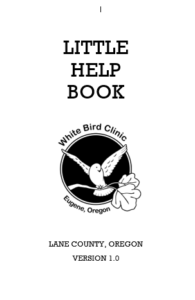 White Bird Clinic has published a human services resource guide called the “Help Book” since the 1980’s. It contains a comprehensive listing of resources of people seeking health and housing resources, financial assistance, shelter, food pantries and meal sites, and help to meet other basic needs. It helps people navigate the system.
White Bird Clinic has published a human services resource guide called the “Help Book” since the 1980’s. It contains a comprehensive listing of resources of people seeking health and housing resources, financial assistance, shelter, food pantries and meal sites, and help to meet other basic needs. It helps people navigate the system.
This year, the publication has been updated and printed as booklets. We are able to distribute them free of charge thanks to contributions from Lane County Health and Human Services, the City of Eugene, Sponsors, Community Supported Shelter, HIV Alliance, and Eugene Mennonite Church. Download The Little Help Book (PDF 630 KB)
Free Little Help Book provides a large amount of resources https://t.co/K3uRASy0wG
— White Bird Clinic (@WhiteBirdClinic) February 15, 2020
The Big Help Book
We are still accepting orders for the 2018 edition of the provider edition of the Help Book with binders or as inserts. Contact us for details.
Around 30 years ago, a town in Oregon retrofitted an old van, staffed it with young medics and mental health counselors and sent them out to respond to the kinds of 911 calls that wouldn’t necessarily require police intervention.
Does death make you uncomfortable & you prefer to avoid the topic altogether?
Are you thinking more about death because of Covid-19?
Are you leaving loved ones unprepared to make decisions by not discussing your end of life preferences?
If you answered YES to any of the above questions, please join us for this free 4-week online discussion group focusing on the 4 things to do before you die on Fridays, October 16 – November 6, 2020 from 1 – 2:30 PM online.
To register, please email amymay@whitebirdclinic.org
Supported in part by a grant from Hearts for Hospice.
White Bird Clinic is always looking for motivated individuals to join their Board of Directors. It is our hope these individuals are representative of our community and/or clients. We are committed to recruiting members of the BIPOC community to expand the voices at our table.
Do you have a strong background in finance, communications, community outreach, fundraising, and/or professional development? Applicants could also have ties to medical, dental, and substance abuse treatment, or the homeless issues in this community, as those are areas in which that White Bird specializes. All applicants should be familiar with non-profit governance.
It is our hope that applicants are enthusiastic and passionate to work in a consensus-based environment and approaching challenging conversations with a sense of joy.
U.S. Sen. Ron Wyden announced plans to introduce a bill in the U.S. Senate aimed at bringing CAHOOTS response model mental health services to cities and towns across the nation through increased Medicaid funding.
“It’s long past time to re-imagine policing in ways that reduce violence and structural racism, and health care can play a key role in that effort,” Wyden said. “Oregon has a proven model in the CAHOOTS program, and I want other states and communities to have federal resources to pursue similar approaches. Americans struggling with mental illness don’t always require law enforcement to be dispatched when they are experiencing a crisis – CAHOOTS is proof positive there is another way.”
.@RonWyden to introduce a national mental health care and public safety proposal, called the CAHOOTS Act, modeled after the #Eugene-based unarmed crisis response team. @WhiteBirdClinic https://t.co/QnHsY2fmJz
— Michelle Maxwell (@MichelleAtTheRG) August 4, 2020
“For individuals experiencing a behavioral health crisis, the assistance of trained health care and social workers is more effective than interventions from law enforcement in deescalating the situation and helping to connect those individuals with vital services to address the problems that led to the crisis,” said Cortez Masto. “I’m proud to support legislation that will provide Nevada and states across the country with additional Medicaid funding to help them set up mobile crisis teams that have a proven track-record of providing effective, trauma-informed care to those in need.”
“We hope that the CAHOOTS model pioneered by White Bird Clinic in Eugene, OR can help communities across the United States develop public safety systems that align with their values,” said Chris Hecht, Executive Coordinator of White Bird Clinic. “Dispatching medical and behavioral health professionals to care for community members in crisis is a proven way to improve outcomes, combat racism, and avoid violence. We thank Senator Wyden for this legislation because we are eager to share a model that has succeeded in our community for 31 years.”
The bill, the Crisis Assistance Helping Out On The Streets (CAHOOTS) Act, grants states enhanced federal Medicaid funding (a 95% federal match) for three years to provide community-based mobile crisis services to individuals experiencing a mental health or SUD crisis. It also provides $25 million for planning grants to states to help establish or build out mobile crisis programs.
The bill is part of Wyden’s agenda to address a persistent lack of access to mental health care for too many Americans. He is also pursuing legislation to support access to wraparound services that help individuals after the initial crisis response.
A one page summary of the bill can be found here. Legislative text can be found here.
by Rashida Tlaib Apr 23, 2020 in “The Appeal”
What would an Emergency First Responders Corps look like?
“The most important aspect of the Emergency First Responder Corps is that it must be civilian and designed to help people. The idea isn’t novel — it is something neighbors have been doing for centuries, and the time is now to take comprehensive approach to formalizing it to help our most vulnerable communities.
A good model of this exists in Eugene, Oregon, CAHOOTS — Crisis Assistance Helping Out on the Streets — has worked for decades to help people in crisis. They deal with those who are suicidal, houseless, infirm, or just having trouble getting the basics they need to survive. It’s fully integrated into the local service community. And they are effective. In 2018, CAHOOTS responded to 24,000 calls. CAHOOTS and the White Bird Clinic were recently awarded federal funding to expand telemedicine access during the current pandemic.”
The Briefing: a new vision for first responders during the COVID-19 pandemic
CAHOOTS program coordinator Tim Black joined Congresswoman Rashida Tlaib and our self-described “biggest fan of CAHOOTS in the Rockies” Colorado State Representative Leslie Herod to discuss the CAHOOTS model and why there is a need for a behavioral health branch of public safety in communities across the nation.
Senator Ron Wyden will meet with White Bird CAHOOTS staff at CAHOOTS headquarters at 970 W 7th Ave in Eugene to discuss how this groundbreaking program can be a model for a national policing reform package and how Congress can best support the work. “The Justice in Policing Act of 2020 takes a vital first step toward accountability, and I am all in with pressing forward to achieve this legislation’s urgently needed re-focus of resources and policies,” said Sen. Wyden. Sen. Wyden co-sponsored the legislation, which would hold police accountable, change the culture of law enforcement and build trust between law enforcement and communities in Oregon and nationwide.
31 years ago White Bird Clinic launched CAHOOTS (Crisis Assistance Helping Out On The Streets) as a community policing initiative to provide mental health first response for crises involving mental illness, homelessness, and addiction. CAHOOTS offers compassionate, effective, timely care while diverting a considerable portion of the public safety workload, conserving police and fire department capacity. In 2019, CAHOOTS handled 17% of the Eugene Police Department’s calls. In 2017, police officers nationally spent 21% of their time responding to or transporting people with mental illness.
Dispatching appropriate responders for each unique situation is essential to ensuring the best outcome. CAHOOTS focuses exclusively on meeting the medical and mental health needs of the community, making it more appropriate, economical, and effective than traditional models involving agencies with a much larger scope of responsibility.
Police officers and fire fighters receive training in a broad set of skills, making their deployment to non-emergent situations unnecessarily costly. The CAHOOTS model also ensures that health and behavioral health care are integrated from the onset of intervention and treatment, adding to the efficacy and economy of the model.
White Bird’s CAHOOTS program has attracted notice from international news media as communities across the nation and around the world confront the need to reimagine public safety to ensure that it equitably serves human beings of all races and ethnicities.
CAHOOTS is providing strategic guidance and training to assist communities in developing innovative public safety systems that align with their values.
In 1969, a group of student activists and concerned practitioners came together to provide crisis services and free medical care for counter-culture youth in Eugene, OR. Having grown continuously since then, today White Bird Clinic has 10 programs, 220 staff members, and more than 400 volunteers each year.
In The Appeal‘s Explainer series, Justice Collaborative lawyers, journalists, and other legal experts help unpack some of the most complicated issues in the criminal justice system.
Co-authors Tim Black, CAHOOTS Operations Coordinator, and Patrisse Cullors, Artist and Activist, “break down the problems behind the headlines—like bail, civil asset forfeiture, or the Brady doctrine—so that everyone can understand them. Wherever possible, we try to utilize the stories of those affected by the criminal justice system to show how these laws and principles should work, and how they often fail.”
Fundraiser Ended
proceeds from the sale of the shirts benefit eugblac, a racial injustice organization dedicated to police abolition, equitable education and black liberation. They have established a bail out fund for Black owned businesses, and have a goal of making an official Black library that they hope will become a sanctuary for the BIPOC community. The CAHOOTS team thanks eugblac for helping them to understand cultural humility and adopt anti-racist practices.
The Oregon Department of Justice is hosting a series of Community Conversations running July 6-29 to help open pathways to justice & support for marginalized & oppressed people in Oregon. The events will cover:
- Your experiences with institutional racism and implicit bias
- Oregon’s new hate crime law
- How Oregon DOJ can engage with your community
The HOOTS (Helping Out Our Teens in Schools) program stands in solidarity with our youth, educators, and community members who are calling for our schools to prioritize the mental health needs and well-being of all students by de-funding the school resource officer (SRO) position and reallocating those funds towards support services for students. We stand with our community as it resoundingly demands that public schools be safe for all students and that school districts demonstrate a commitment to providing ample non-punitive support.
As a team of mental health and medical professionals, we see students on a daily basis who are survivors of a maladapted safety net that only exacerbates issues of poverty and oppression. Hoots believes in utilizing mediation, restorative justice and self-reflection–tools that we know to be more effective in the development of our students than criminalization and punishment. Our team encourages school administrators to work proactively to identify alternative ways in which student needs and challenges can be addressed, and we happily offer our assistance in whatever way we can. We believe that working to support students, rather than punishing them, is ultimately the path that will lead to safer schools.
We hear students of color speaking out about law enforcement presence in their schools, and the negative impact this has on their safety and ability to thrive. We need to listen and believe these voices, and allow them to lead the way toward racial justice in our school system. Despite the ubiquitous presence of SROs nationwide, very little evidence exists that supports their effectiveness at deterring acts of violence. On the contrary, in many instances, SROs have been found to perpetuate and escalate violence in schools.
Hoots pledges its support to the movement to reallocate all funding from the SRO program. We believe that students’ actions are a reflection of the care afforded to them by the community, and as such, well-compensated teachers, counselors, and support staff are what will truly make a difference in keeping students safe and healthy. We ask that all schools demonstrate their dedication to listening to the voices of students of color and their families, and the empirical evidence available showing the harm SROs can cause. We are thankful to be a part of a community that can have these challenging discussions.
Update: On Tuesday, June 16th the Eugene Human Rights Commission unanimously voted to endorse this policy recommendation and refer it on to City Council for deliberation.
The following testimony in reference to the enforcement of the prohibited camping ordinance was submitted to the Eugene Police Commission, a twelve-member citizen body that acts in an advisory capacity to the city council, the chief of police and the city manager on police policy and resource issues. Join the Thursday, June 11 meeting via Webinar: https://eugene-or-gov.zoom.us/j/98439278535
Dear Police Commissioners,
In reference to your agenda item on the Prohibited Camping Re-enforcement Rollout, White Bird Clinic asks that EPD continue to follow CDC guidelines and not disperse encampments unless there is illegal conduct outside of camping.
Recommended Policy Focus – Harm Reduction
- We support EPD strategies that minimize impacts to unhoused individuals:
-
- Response to unsanctioned camping complaints should provide outreach materials including camping guidelines, social services information and referral, COVID-19 information, and COVID-19 transmission prevention strategies including waste disposal.
- Implementing a code of conduct for campers.
- Providing educational materials on conflict mediation between individuals who shelter outside and other community members.
- Supporting community health and safety measures.
- We request the City of Eugene clarify locations where sheltering in place, including sheltering in a vehicle, is permitted and where it is prohibited.
- Establish recovery sites for sanctioned and supported camping that allow pets, partners and possessions, with 24-hour security, bathrooms, and storage.
- Establish an alternative call and dispatch system to using law enforcement when a complaint only involves prohibited camping and there is no threat to public safety or crisis response necessary.
White Bird Clinic believes that ending unsheltered homelessness requires a coordinated approach that addresses social, emotional, and physical well-being. We support policy initiatives that center people with lived experience and support solution-oriented advocacy efforts that adequately fund programs effective in ending homelessness.
Supporting Materials
- Letter from the National Law Center on Homelessness & Poverty (“Law Center”) to the Mayor, City Council, and City Manager, regarding the closure of temporary shelter facilities for people experiencing homelessness in Eugene, OR during the COVID-19 crisis, and the enforcement of anti-camping ordinances against people experiencing homelessness during the COVID-19 crisis DOWNLOAD PDF
- Interim Guidance on Unsheltered Homelessness and Coronavirus Disease 2019 (COVID-19) for Homeless Service Providers and Local Officials, CDC Web Site
